
A look back at the esteemed personalities who left us this year, who'd touched us with their innovation, creativity and humanity. By CBSNews.com senior producer David Morgan. The Associated Press contributed to this gallery. The 6-foot-5 outfielder Dave Parker (June 9, 1951-June 28, 2025), nicknamed "the Cobra," was one of the best players of his era, part of two World Series championship teams: the Pittsburgh Pirates' "We Are Family" squad in 1979, and the Oakland A's in 1989. Beginning in 1973, Parker played 19 seasons in the majors, 11 for the Pirates. He was the National League MVP in 1978. He also played four seasons in his hometown with the Cincinnati Reds, and later wore the jerseys of the Milwaukee Brewers, California Angels and Toronto Blue Jays. Parker was a seven-time All-Star and three-time Gold Glove right fielder, won National League batting titles in 1977 and '78, and led the NL with 125 RBIs in 1985. He finished his career as a .290 hitter with 339 homers and 1,493 RBIs. He was set to be inducted into the Baseball Hall of Fame next month. Parker, who was diagnosed with Parkinson's disease in 2012, told reporters that he burst into tears upon learning of his selection to Cooperstown. "Yeah, I cried," Parker said after receiving the news. "It only took a few minutes, because I don't cry. "I was a five-tool player. I could do them all," Parker said. "I never trotted to first base. I don't know if people noticed that, but I ran hard on every play." Bill Moyers (June 5, 1934-June 26, 2025) became one of television's most acclaimed journalists, after having served as a White House press secretary for President Lyndon B. Johnson. His transition to the other side of the microphone, in the midst of the Vietnam War, led to a career as the publisher of a Pulitzer Prize-winning newspaper; bestselling author; correspondent and commentator for CBS and NBC; and host of news and current affairs programming on public television. Among his honors were more than 30 Emmy Awards, 11 Peabody Awards, the Alfred I. duPont-Columbia University Gold Baton Award for career excellence in broadcast journalism (twice), and induction into the Television Hall of Fame. Ordained as a Baptist minister, he gave up the ministry and instead worked as an aide to then-Senator Lyndon B. Johnson. That led to roles in the Kennedy and Johnson administrations, including deputy director of the Peace Corps. Moyers resigned as White House press secretary in December 1966, as the Vietnam War raged. He later wrote, "We had become a war government, not a reform government, and there was no creative role left for me under those circumstances." In 1967, Moyers became publisher of the Long Island newspaper Newsday. When he left after three years (and two Pulitzers), he spent the summer traveling 13,000 miles around the U.S., a trip which became the basis of his bestseller, "Listening to America: A Traveler Rediscovers His Country." He headlined the public television series "Bill Moyers' Journal," covering topics as varied as government corruption, drug addiction, media consolidation, religion, modern dance and the environment. He was chief correspondent of "CBS Reports" from 1976 to 1978, and in the '80s returned to CBS as a senior news analyst for "CBS Evening News." He also contributed reports to "CBS Sunday Morning," and was later an NBC News commentator and MSNBC host. Moyers referred to himself as a "citizen journalist" operating outside the establishment. Among his PBS series and specials were "Creativity with Bill Moyers," "The Secret Government: The Constitution in Crisis" (about the Iran-Contra scandal), "Moyers: God and Politics," "Beyond Hate," "Joseph Campbell and the Power of Myth," "Healing and the Mind," "In Search of the Constitution," "Facing Evil," and "Now." In a 1997 conversation with Dallas public television station KERA correspondent Lee Cullum, Moyers spoke of a societal shift in America's sense of honor and its inverse, shame. "While I know many honorable people, we've lost the other side of the coin — we've lost the shame that produces honor," he said. "It's almost impossible to imagine anything today that is so shameful that it costs the wrongdoer in public. … Until we return to a sense of shame, that there are some things we cannot espouse as a society, and that if they are occurring then we have to be penalized for perpetuating them — we have to return to a sense of shame, I think, before we will restore a sense of honor." He won four Grammy Awards, was nominated for six Oscars, and received an honorary Academy Award in 2019, with more than 200 TV and film credits to his name. But Argentinean jazz pianist Lalo Schifrin (June 21, 1932-June 26, 2025) is best known for a single piece of music, perhaps the most recognizable TV theme ever created: the title music for CBS' 1960s espionage series "Mission: Impossible." "The producer called me and told me, 'You're going to have to write something exciting, almost like a logo, something that will be a signature, and it's going to start with a fuse,'" Schifrin told the Associated Press in 2006. "So, I did it and there was nothing on the screen. And maybe the fact that I was so free and I had no images to catch, maybe that's why this thing has become so successful — because I wrote something that came from inside me." Schifrin, who'd studied at the Paris Conservatory with Olivier Messiaen, was a jazz musician and classical conductor, who had worked with such legends as Dizzy Gillespie, Count Basie, Sarah Vaughan, Ella Fitzgerald, Stan Getz, George Benson, Zubin Mehta and Daniel Barenboim. He had won a Grammy for 1965's "Jazz Suite on the Mass Texts"; that same year he earned a nomination for the score of "The Man From U.N.C.L.E." But the "Mission: Impossible" theme — energetic, in 5/4 time, with a cool flute, bongo drums, and a banging bass riff — was on an altogether higher level. The show won Schifrin two Grammys, for best instrumental theme and best original score from a motion picture or a TV show. He followed that series with themes composed for "Mannix," "Medical Center," "Starsky & Hutch," "Petrocelli," and "Chicago Story." When "Mission: Impossible" was rebooted for movie screens in 1996, director Brian De Palma kept Schifrin's iconic music. Schifrin also wrote the score for the Paul Newman film "Cool Hand Luke" — propulsive music that would be used by ABC owned-and-operated stations for their local newscasts. In 2008 Schifrin told the Television Academy that when Warner Brothers — the copyright holders of "Cool Hand Luke" — informed him that "Eyewitness News" would be using his theme, his response was, "'Fine, no problem.' I laugh all the way to the bank!" He earned Oscar nominations for "Cool Hand Luke," "The Fox," "Voyage of the Damned," "The Amityville Horror," and "The Sting II," as well as a best song nomination for "People Alone," from "The Competition." Other credits included "Dirty Harry" and its sequels, "Rollercoaster," "Tango," "Rush Hour," and the TV miniseries "A.D." He also wrote the grand finale musical performance for the World Cup championship in Italy in 1990, in which the Three Tenors — Plácido Domingo, Luciano Pavarotti and José Carreras — sang together for the first time. Following a mass shooting on a Long Island Rail Road commuter train that left her husband dead and her son, Kevin, severely wounded, Carolyn McCarthy (Jan. 5, 1944-June 26, 2025), a nurse, became a crusader for gun control. On Dec. 7, 1993, a gunman opened fire on a train leaving New York City. By the time passengers tackled the shooter, six people were dead and 19 wounded. McCarthy, then a Republican, jumped into politics after her GOP congressman, Daniel Frisa, voted to repeal an assault weapons ban. When she approached local Republicans about a primary challenge, they were not keen, and so, at 52, the political rookie ran on the Democratic ticket, campaigning largely on the issue of gun violence — and won. Her surprise victory in 1996 made McCarthy a national figure, and a familiar voice against guns in the wake of repeated tragedies, from school shootings at Columbine and Sandy Hook, to the near-fatal shooting of fellow Congresswoman Gabrielle Giffords. Though she also worked in the areas of improving health care and education, her public face was largely shaped by her advocacy against gun violence. She faced strong opposition from the National Rifle Association and other supporters of gun rights, and most of the legislation she sponsored to restrict the sales of guns or ammunition failed. One that did pass and get signed into law: a bill to improve background checks on potentially ineligible gun purchasers, such as felons and the mentally ill, signed by President George W. Bush in 2008. She served in Congress until 2015. In January 2025, President Biden awarded her the Presidential Citizens Medal, America's second-highest civilian honor. In 2012, following the shooting at Sandy Hook Elementary School in Newtown, Conn., McCarthy offered a commentary on "CBS Sunday Morning," in which she stated, "The Second Amendment is the law of the land — it's an American right to own a gun. But it's also our responsibility to protect public health and enact reasonable safety restrictions, like we do with cars or food or medicine, because too many of us are dying from gun violence every day. No parent should have to send their child to school and wonder if there will be a mass shooting there that day. … That's why I hope that we as a nation come together and take action to prevent these types of tragedies in the future." Singer and actor Bobby Sherman (July 22, 1943-June 24, 2025) was a teen idol in the 1960s and '70s, with such Top 10 hits as "Little Woman," "Julie, Do Ya Love Me," "Easy Come, Easy Go," and "La La La (If I Had You)." His squeaky-clean image made him a a regular feature on the covers of Tiger Beat and other teen magazines. In 2005, TV Guide listed him at #8 among "TV's 25 Greatest Teen Idols." Sherman grew up in the San Fernando Valley, singing with a high-school rock band. In 1964, while he was studying child psychology at a community college, his girlfriend took him to a Hollywood party where he stepped up and sang with the band. Guests, including Jane Fonda, Natalie Wood and Sal Mineo, inquired if he had representation. They took his number and, a few days later, an agent called and set him up with the ABC rock 'n' roll show "Shindig!" He had six albums on the Billboard 200 chart, including "Here Comes Bobby," which spent 48 weeks on the album chart, peaking at No. 10. He starred in the TV series "Here Come the Brides" (also singing the theme song, "Seattle"), and "Getting Together," a spinoff of "The Partridge Family." In 1988, Sherman became a certified medical emergency technician and instructor for the Los Angeles Police Department, teaching police recruits first aid and CPR. He was a reserve deputy with the San Bernardino County Sheriff's Department. Sherman estimated that, as a paramedic, he helped five women deliver babies in the backseats of cars or other locations. "If I see an accident, I feel compelled to stop and give aid even if I'm in my own car," he told the St. Petersburg Times. "I carry equipment with me. And there's not a better feeling than the one you get from helping somebody out. I would recommend it to everybody." But performing wasn't entirely out of the picture in his later life; in 1998, Sherman joined the "Teen Idols Tour" with former Monkees Micky Dolenz and Davy Jones, and Peter Noone of Herman's Hermits. Known for his signature falsetto, 1960s singer Lou Christie (Feb. 19, 1943-June 18, 2025) had hits with "Lightnin' Strikes," "Two Faces Have I," "Rhapsody in the Rain," and "I'm Gonna Make You Mine." Born Lugee Alfredo Giovanni Sacco in Glenwillard, Pennsylvania, Christie studied music before joining a group called the Classics, recording for small labels, before becoming a back-up singer in New York. His "Lightnin' Strikes" went to #1 in 1965. In all, he released 12 albums, and continued hitting the high notes on oldies tours. In 2021, Christie was asked by the Hazelton Standard Speaker how, at 78, he kept his falsetto voice. "I don't do anything to maintain it," he said. "I'm not a smoker. And I don't go out to loud places. My vocal range is the same as it was. I sing everything in the same key that I recorded in. I don't know how I do that. I don't think about it. I try to take care of myself. I'm not a junk eater. I don't think I've had a bottle of soda pop, or whatever you want to call it, in the past 10 years. My throat has been unbelievable to me, you know, and I just know it's something special and I just take care of it. I had a high voice when I was young and then my voice changed down to a lower register. I never lost my octaves." As a founding member of the '60s rock group the Beach Boys, singer-songwriter Brian Wilson (June 20, 1942-June 11, 2025) created the sun & surf sound that has been the soundtrack of summer ever since. It began in 1961, on Labor Day weekend, when Wilson's parents went out of town. Using the money they'd left for food, Wilson and his brothers decided to rent some musical instruments. "And then we starved, but we had a good, you know, time," Wilson told "Sunday Morning" in 2002. "We" was Wilson; his brothers, Dennis and Carl; cousin Mike Love; and their buddy, Al Jardine. "Surfing," the song they recorded that day under the name the Pendletons, went to #1 on the local charts. [It was helped by their own multiple calls to the radio station, changing their voices to impersonate masses of listeners.] It landed them a record contract, and their promotion manager suggested a new name — the Beach Boys — which the group didn't learn of until the record was released. "Surfin' Safari" was the first of their 29 studio albums. And never mind that Brian Wilson himself never surfed; his songs like "Surfin'," "Dance, Dance, Dance," "California Girls," "I Get Around," "Fun, Fun, Fun," "Surfer Girl," "Help Me, Rhonda," "Good Vibrations," "Barbara Ann," and "Surfin' U.S.A." (for which Wilson rewrote the lyrics from Chuck Berry's "Sweet Little Sixteen") were instrumental in conjuring the "California Sound" — music evocative of carefree days at the beach — which earned them 35 Top 40 hits. Their manager, the Wilsons' father, Murray, drove them hard. "He was a huge problem," Love told "Sunday Morning in 2012. "Emotionally, he was abusive, emotionally and physically to his kids, and he was unbearable at times. Brian and I'd actually fired him." But Brian admitted he also pushed himself hard. "Yeah, I drove myself. I wanted to be a perfectionist," he said. In 1964, Wilson suffered a nervous breakdown, quit touring, and retreated to the studio, while the rest of the group stayed on the road. Wilson's songs were more harmonically and texturally complex than most pop music. Like the Beatles, who were the Beach Boys' most obvious artistic competitors, Wilson used rich vocal harmonics, orchestral and electronic instruments, and studio overdubbing to create dense textures on albums such as 1966's "Pet Sounds" (his response to the Beatles' "Rubber Soul"). With songs connected by themes of love and loss (such as "Wouldn't It Be Nice" and "God Only Knows"), "Pet Sounds" was named by Rolling Stone magazine the second greatest album of all time. But it was a source of contention within the band itself. "Mike and the guys didn't like it," Wilson told "Sunday Morning" in 2015. "They, you know, thought it was too advanced music. They wanted to keep making car songs and surf songs. I said, 'Guys, we gotta grow. We've gotta grow musically.'" But by the late 1960s, Wilson was struggling to write — his follow-up album to "Pet Sounds," called "Smile," was shelved — and he plunged into a severe depression. The band splintered. He was plagued by substance abuse and obesity. Along the way, Wilson's marriage fell apart, and he was estranged from his daughters, Carnie and Wendy (who, with another daughter of rock legends, Chynna Phillips, formed the trio Wilson Phillips). In desperation, Wilson went under the round-the-clock care of an unorthodox psychologist, Eugene Landy, whose years-long grip on the songwriter was finally broken in 1991, when the family discovered that Wilson's will had been revised, with Landy named as his main beneficiary. They won a court order barring the therapist from any further contact with his patient. Eventually, Wilson got well enough to record again. He released 13 solo albums beginning in 1988, and performed with Carnie and Wendy. He also had to come to terms with the deaths of his brothers, Dennis (in a 1983 drowning) and Carl (in 1998, from cancer). He married Melinda Ledbetter in 1995, and they had five adopted children together. And in 2012, to mark the band's 50th anniversary, Brian Wilson reunited with Beach Boys members Mike Love, Al Jardine, David Marks and Bruce Johnston for a Grammys appearance. And when they returned to the studio together for the first time in nearly two decades to make a new album, "That's Why God Made the Radio," the bitterness had fallen away — and the good vibrations were back. With his band Sly and the Family Stone, musician Sly Stone (March 15, 1943-June 9, 2025) invented his own hybrid of rock 'n' roll, R&B and funk, becoming one of the most influential musicians of the late 1960s and early '70s, with such songs as "Dance to the Music," "Everyday People," and "Hot Fun in the Summertime." Born Sylvester Stewart, he grew up in California, singing gospel with his siblings. He performed with school bands and worked as a radio DJ and record producer before founding Sly and the Family Stone in 1966. Stone said he picked the racially-mixed blend of men and women to inspire audiences. (Among the players: trumpeter Cynthia Robinson, drummer Greg Errico, saxophonist Jerry Martini, and bassist Larry Graham Jr. His own siblings — Freddie, frontman of Freddie & The Stone Souls; Vet; and Rose — would also join.) As he told the Guardian in 2013, "I wanted people to look onstage and see the world and how the world can get along. If they could see us, see we were having fun, it might make it easier for them to catch on." They released three albums ("A Whole New Thing," "Dance to the Music," and "Life") that were blends of psychedelic rock and soul, before their fourth, 1969's "Stand!," with the songs "I Want to Take You Higher," "Sing a Simple Song," and the #1 hit "Everyday People," put them on the map. That summer they played the Harlem Cultural Festival (footage of which was preserved in the documentary "Summer of Soul"), and at Woodstock. Stone's joyous performances and musical innovations made the band stand out. But his music gradually grew darker. Their follow-up album, 1971's "There's a Riot Goin' On" (which included the tracks "Family Affair," "Runnin' Away," and "Thank You for Talkin' to Me Africa"), hit #1 with its trenchant social commentary and drum machine beats. But the making of the album was turbulent: Stone struggled due to drugs, and the band was falling apart. He often missed gigs (although he managed to make it to his own wedding, to Kathy Silva, at Madison Square Garden in 1974). By the 1980s, Sly and the Family Stone had dissolved, and Stone was rarely seen by the public. He made a few comeback attempts, but was mostly out of view. In 2006, he appeared at a Grammys tribute with his original group and left before it was over. In 2011, the New York Post wrote that Stone was homeless, living in a van in Los Angeles. But he eventually cleaned up his act. According to his longtime manager Arlene Hirschkowitz, by 2019, Stone was sober, and in 2023 he published a memoir (co-written by Ben Greenman), with a title taken from his classic 1969 song, "Thank You (Falettinme Be Mice Elf Again)." Emmy Award-winning actress Loretta Swit (Nov. 4, 1937-May 30, 2025) was best known for bringing Maj. Margaret "Hot Lips" Houlihan to full life on the long-running TV series "M*A*S*H." The head nurse of a Mobile Army Surgical Hospital during the Korean War, Houlihan brought her by-the-book attitude for Army rules against the anti-authoritarian streak of Alan Alda's "Hawkeye" Pierce. The series was adapted from Robert Altman's Oscar-winning 1970 film, and while toned down for television, the CBS series, produced by Larry Gelbart and Gene Reynolds, aimed to maintain the movie's anti-establishment ethos during the turmoil of the Vietnam War. After small roles on "Gunsmoke," "Mannix" and "Hawaii Five-O," Swit was called in to meet the producers of "M*A*S*H." Then her agent informed her that she'd received an offer to appear in a movie with Olivia de Havilland, which conflicted with shooting the pilot. But "M*A*S*H" producer Gene Reynold told the agent, "Nope, don't give her away. She's ours," Swit recalled in a 2020 Edge Magazine interview. As the show progressed, Swit expanded her character beyond being the target of the doctors' pranks, and fought against her character being tied down by her affair with Maj. Frank Burns (played by Larry Linville). She suggested that Hot Lips break up with Frank, meet a dashing man in Tokyo, and get engaged, married – and divorced. "We really worked together like a well-oiled machine – everybody on this show worked together with the writers," she told Edge. "You had these creative people, throwing ideas back and forth in positive, wonderful, rich ways. It was a very exciting time to be around, to be an actor in that situation. You could not help but get better and grow and learn." She won two Emmys for playing Houlihan, and received eight more nominations. She was also nominated for four Golden Globes. Although some actors came and went, Swit lasted throughout the show's 11-season run, which concluded in 1983. A native of Passaic, N.J., Swit had to overcome her mother's aversion to her becoming an actress. She recalled to the Toronto Star in 2010 her mom's reaction after attending a play in a Greenwich Village theater, "walking in as though it were the doorway to Hades. After the show, I came out and my mother said to my father, 'If you don't stop her now, she may wind up doing this for the rest of her life.' That was it. That gave me the courage I needed to keep at it until I succeeded." On stage she starred in "Same Time, Next Year," "Shirley Valentine," and "The Mystery of Edwin Drood." Other screen appearances include "Freebie and the Bean," "S.O.B.," and "Murder She Wrote." She also founded a charity, the SwitHeart Animal Alliance. Houlihan would inspire countless women to become nurses, in part because the show was closer to reality that other medical shows. "Up until 'M*A*S*H,' the doctors on television didn't lose patients; they always pulled them through," she said. "That's nice, but it's not honest. We used to say that 'M*A*S*H' is not a John Wayne movie about war. In our series, people died, patients died, people got wounded and hurt. And we never stop talking about the ugliness of it. The humor came out of our own madness and craziness to have to be there to do that. The only way to survive was by being crazy and funny and drunk. I think 'M*A*S*H' took on cult status because we told everybody the truth." The style of Brazilian photographer and environmentalist Sebastião Salgado (Feb. 8, 1944-May 23, 2025) was marked by rich black-and-white imagery of imperiled nature and impoverished humanity. Though he insisted he was "just a photographer," Salgado's genius was in focusing on real people and the dignity of their toil: miners in Brazil, India and Indonesia; fishermen in the Mediterranean; cane cutters in Cuba; firefighters engaging with oil well conflagrations in Kuwait; slaughterhouse workers in South Dakota. Born in Aimorés, Brazil, Salgado emigrated to France in 1969 while Brazil was under a military dictatorship. In Paris, he dedicated himself to photography. His pictures were distributed by Sygma, Gamma and Magnum, of which he later became president. In 1994 Salgado and his wife founded the Amazonia Images agency to distribute his work. Salgado's main projects included the "Amazonia" series; "Gold," about the extraction of gold from the earth; "Genesis," a tour of the world at its most primordial; and "Exodus," which depicted refugees and migrants. In 1995, Salgado, overseeing his exhibition titled "Workers" at the International Center of Photography in Manhattan, described to "Sunday Morning" his images that captured men and woman whose labor was being increasingly replaced by mechanized industrialization: "I believe it's a story of humanity, the way that we work, that we produce, from the beginnings until now … I believe that all humanity must know about it because if you want to build something for the future, we must know the past, and we must know what's happening at the present moment." In addition to photography, Salgado was also an environmental activist, working to restore part of the Atlantic Forest in the Brazilian state of Minas Gerais, and founding a nature reserve. He and his wife also created Instituto Terra, which to date has planted more than 3 million trees in the city of Aimorés. Salgado was the subject of the 2014 Oscar-nominated documentary "The Salt of the Earth," co-directed by Wim Wenders and his son, Juliano Ribeiro Salgado. Actor George Wendt (October 17, 1948-May 20, 2025) earned six Emmy Award nominations for playing his most recognizable character: the affable barfly Norm Peterson – just one of the denizens of the Boston bar known as "Cheers." After spending six years at the Second City improv troupe in Chicago, Wendt was not optimistic about auditioning for "Cheers," as he recounted in a 2012 oral history for GQ: "My agent said, 'It's a small role, honey. It's one line. Actually, it's one word.' The word was 'beer.' I was having a hard time believing I was right for the role of 'the guy who looked like he wanted a beer.' So I went in, and they said, 'It's too small a role. Why don't you read this other one?' And it was a guy who never left the bar." Coach: "How's life treating you Norm?" After "Cheers," Wendt starred in his own sitcom, "The George Wendt Show," and appeared on "Seinfeld," "Frasier," "The Naked Truth," "Sabrina the Teenage Witch," "The Ghost Whisperer," "Harry's Law" and "Portlandia." Wendt later appeared on Broadway in "Art," "Hairspray," "Elf," and "Breakfast at Tiffany's" (playing a bartender). He starred in a national tour of "12 Angry Men," and in productions of David Mamet's "Lakeboat," "Death of a Salesman," "The Odd Couple," "Never Too Late" and "Funnyman." During her more than three decades of recording, singer-songwriter-guitarist Jill Sobule (Jan. 16, 1959-May 1, 2025) released more than a dozen albums, EPs and compilations that addressed such complex subject matter as the death penalty, anorexia, the French Resistance, teen mental health, religion, and LGBTQ+ issues. Her 1995 song "I Kissed A Girl" was the first openly-gay-themed song to make it into the Billboard Top 20 despite being banned by many Southern radio stations. Other hits included "Too Cool to Fall in Love," "Supermodel" (from the movie "Clueless"), and "Bitter." Born in Denver, Sobule was praised for her witty and poignant writing, which first attracted attention with her 1990 album, "Things Here Are Different." After two record companies dropped her and two indie labels she was tied to went bankrupt, Sobule turned to crowdfunding, with a website, jillsnextrecord.com, to raise $75,000. "I think I got it within six weeks," Sobule told "CBS Evening News." In addition to small dollar gifts, one donor wrote in saying, "'I'm really not a fan of your music, but I think this is a great new model, so I'm giving you $50.'" The resulting album, "California Years," was released in 2009. She turned to crowdsourcing again for the 2018 album "Nostalgia Kills." Sobule performed with such artists as Neil Young, Melissa Etheridge, Billy Bragg, Warren Zevon and Cyndi Lauper; appeared with "SNL" comedian Julia Sweeney in a stage show, "Jill and Julia"; and played herself performing a song on "The Simpsons." She also starred in "F*CK7thGrade," a 2022 autobiographical off-Broadway show described as "a queer musical memoir" that was nominated for a Drama Desk Award. In April, in an interview with Cincy Music, Sobule was asked about the changes she has seen in the recording business during her career. "The demise of the music industry as we once knew it, hasn't been great," she said. "Thinking of the sad-ass checks from Spotify. But it has also made one become creative in other endeavors. For example, musical theater. I do tell my theater pals that I have moved on from the music industry, as I've been told off-Broadway theater is so lucrative. They just laugh." Comedian Ruth Buzzi (July 24, 1936-May 1, 2025) rose to fame on NBC's "Rowan & Martin's Laugh-In" playing frumpy Gladys Ormphby, a hair-net-wearing spinster wielding her purse against the advances of a dirty old man (or, indeed, anyone). Buzzi, who appeared on "The Garry Moore Show" and had guest spots on "The Monkees" and "That Girl," had played several characters on "The Steve Allen Comedy Hour," when she was noticed by "Laugh-In" creator-producer George Schlatter. In his memoir, "Still Laughing: A Life in Comedy," Schlatter wrote, "I must admit that the hairnet and the rolled-down stockings did light my fire. My favorite Gladys line was when she announced that the day of the office Christmas party, they sent her home early." She threw herself into several characters on the sketch comedy show, from drunken barflies to Hollywood gossip columnist Busy Buzzi and Alice Capone (a takeoff on Marlon Brando's Vito Corleone). But Gladys Ormphby was the one with the most mileage. She brought her Ormphby character (and her purse) to the "Dean Martin Celebrity Roasts," "Sesame Street," a Weird Al Yankovic music video, and a Canada Dry ginger ale ad. "Gladys embodies the overlooked, the downtrodden, the taken for granted, the struggler," Buzzi told The Connecticut Post in 2018. "So when she fights back, she speaks for everyone who's been marginalized, reduced to a sex object or otherwise abused. And that's almost everyone at some time or other." Buzzi won a Golden Globe, and earned two Emmy nominations, for "Laugh-In." She was also in the original Broadway cast of "Sweet Charity" with Gwen Verdon in 1966, and had numerous TV and movie credits over the years, with appearances in "Love, American Style," "Medical Center," "You Can't Do That on Television," "Alice," "Freaky Friday," "The Jamie Foxx Show," "Sabrina the Teenage Witch," and more. The hairnet and costume of Gladys was, Buzzi said, headed to the Smithsonian, but the character was never far away. "So many people ask me to hit them with my purse," she told the Jamestown, N.Y. Post-Journal in 2017. "In fact, a few years ago we were at a Beverly Hills party and in walked Elton John. He immediately made his way over to me and said, 'For God's sakes, Ruth, please hit me with your purse. That's been on my bucket list for years!'" In 2013, when the aging Pope Benedict XVI, the conservative leader of the Catholic Church, resigned, the choice of a successor was nothing short of an election on the future direction of the Vatican. From the instant the progressive Argentinian cleric Jorge Mario Bergoglio walked out on the balcony overlooking St. Peter's Square, the papacy of Pope Francis (Dec. 17, 1936-April 21, 2025) signaled an end to "business as usual." He began with his choice of taking the name of a saint who lived in poverty after hearing God call him to "rebuild my church, for it is in ruins." And the new pope's pronouncements demonstrated a willingness to look beyond accepted Catholic orthodoxy. He frankly discussed topics that were controversial within the Church, including gay priests and the role of women in leadership. He also offered a more welcoming tone to the LGBTQ community, saying, "If someone is gay and he searches for the Lord and has good will, who am I to judge?" He spoke out to address the danger of climate change, criticized the global financial system, and favored the opening of borders not just for refugees from conflict but also for economic migrants. His charisma and humility earned him the label "the People's Pope," while his willingness to take as inspiration the life of the humble founder of the Franciscan order rejuvenated some Catholics, and attracted non-Catholics to the pope's mission. New York Cardinal Timothy Dolan described the "Francis effect" to "Sunday Morning" in 2017: "The number of people that will come up to me as I'm walking the streets of New York and say, 'Hey, we like this guy, Francis. I haven't been to church in a while, but I'm taking a second look, okay?'" The 266th pope was the first from the Americas. Born in Buenos Aires, the son of an accountant from Italy and the daughter of Italian immigrants, Bergoglio was ordained a priest with the Jesuit order, which he led during the country's violent dictatorship. He was named auxiliary bishop of Buenos Aires in 1992, and in 1998 became archbishop. Three years later, he was elevated to cardinal by Pope John Paul II. His writings focused on social justice issues that would become among his chief concerns as pope: the poor, Indigenous peoples, the environment, and the need for a missionary church. His first trip outside Rome as pope was to the island of Lampedusa in the Mediterranean, where he met with newly-arrived migrants. There, he denounced the "globalization of indifference" shown to refugees, many of whom had drowned while seeking a better life. In his homily during an open Mass there, Francis said, "Who has wept for the deaths of these brothers and sisters? Who has wept for the people who were on the boat? For the young mothers carrying their babies? For these men who wanted something to support their families? We are a society that has forgotten the experience of weeping, of 'suffering with'; the globalization of indifference has taken from us the ability to weep! … Let us ask the Lord for the grace to weep over our indifference, to weep over the cruelty in the world, in ourselves, and even in those who anonymously make socio-economic decisions that open the way to tragedies like this." And despite his overall popularity, Francis did have his critics who believe he had blurred the lines around traditional Church teachings. For example, while stating that marriage was between a man and a woman, he also said that priests could bless same-sex couples. "You bet there are some conservatives that are unhappy with Pope Francis," Cardinal Dolan told "Sunday Morning." "There're also some liberals that wish he would move much more radically and expeditiously in some of the reforms. So, you're gonna get it from both sides." In 2017, when "Sunday Morning" correspondent Mo Rocca asked the pope why he chose the name Francis, the pontiff replied, "It just came to me." He then left with a request of his audience: "Pray for me; I need it." Actress Jean Marsh (July 1, 1934-April 13, 2025) won an Emmy for her performance as Rose Buck, a Cockney parlor maid, in the British TV series "Upstairs, Downstairs," a show she co-created. It was during a vacation in the south of France when she and actress Eileen Atkins (both of whom had been raised in working-class environments) came up with the storyline of "Upstairs, Downstairs." Set in Edwardian London, it traced the lives of the well-to-do Bellamy family and the servants in their Belgravia townhouse. The show ran from 1971-75 and was an international hit, earning Marsh three Emmy nominations and a win. A BBC sequel, begun in 2010 and starring Claire Foy, featured Marsh (the only actor to appear in both series) as Rose, this time promoted to housekeeper. She earned a fourth Emmy nomination, but her participation was limited in the second season, having suffered a minor stroke. Marsh and Atkins also created a 1990s BBC series, "The House of Eliott." Asked once about royalties she may have earned from creating and starring in "Upstairs, Downstairs," Marsh noted the differences between Hollywood and British TV: "If it had happened in America, I'd be Mary Tyler Moore. As it is, I'm Mary Tyler Less," she told UPI in 1982. Born in London, Marsh attended dancing school and the Aida Foster Theatre School. She made her West End debut at age 12, and appeared in repertory productions before traveling to Broadway in 1959, to star as Hero in "Much Ado About Nothing" opposite John Gielgud. She also starred with Laurence Olivier in a TV production of "The Moon and Sixpence." Marsh's other TV roles included a 1959 "Twilight Zone" episode, "The Lonely," in which she played an android, gifted to a condemned man confined to a solitary life on an asteroid. She starred as Sara Kingdom, an assistant of "Doctor Who" during the BBC series' third season. She appeared in "Danger Man," "I Spy," "The Saint," "Jane Eyre" (as Rochester's wife), "UFO," "The Waltons," "Hawaii Five-O," "Nine to Five," "Murder, She Wrote," "Fatherland," and "Sense & Sensibility." In films she appeared in "Cleopatra" as the wife of Marc Antony; "Charlie Bubbles," with Albert Finney; Alfred Hitchcock's "Frenzy"; "The Eagle Has Landed"; "The Changeling"; "Return to Oz"; "Willow"; and "Danny the Champion of the World." She returned to Broadway in the '70s in Alan Bennett's "Habeas Corpus," and "Whose Life Is It Anyway?" opposite Tom Conti. She also wrote fiction, including novels based on "The House of Eliott." Marsh described her writing process to This Is Bristol in 2011: "When I write, I am never really sure where the story is going. The only way I can describe the process is that my characters sometimes do things without my permission. When I was writing 'Fiennders Abbey,' one of them died without my permission, and I remember being quite upset. I had to take a break and have a glass of wine." "Hey, Mr. Wilson!" Jay North (Aug. 3, 1951-April 6, 2025), who began appearing on kids' TV shows when he was 5, had already played small roles on "77 Sunset Strip" and "Wanted: Dead or Alive" when he was cast, at age 6, as the bright-eyed troublemaker in the TV adaptation of Hank Ketcham's comic strip "Dennis the Menace." The series ran on CBS for four years beginning in 1959, but Dennis continued to strike terror in the heart of his elderly neighbor, George Wilson, for years after in syndication. The stardom came at a cost to the child. He told the Los Angeles Daily News in 1993 that he had been abused by his aunt and uncle, who would be with him on set while North's single mom was at work. "If it took me more than one or two takes, I would be threatened and then whacked," North said. His other TV and film credits in the 1960s and early '70s included "Wagon Train," "The Man From U.N.C.L.E.," "Maya," and voice work for "The Banana Splits Adventure Hour" and "The Pebbles and Bamm-Bamm Show." After appearing on stage in "Butterflies Are Free," North had a brief stint in the Navy in the 1970s, and tried to return to show business with more mature, darker roles. Aside from a 1985 Yugoslavian World War II film, "Wild Wind," North's appearances were mostly playing off his child actor past. He satirized his Dennis the Menace role on HBO's "Not Necessarily the News," and played himself in a 1999 episode of "The Simpsons" and the David Spade comedy "Dickie Roberts: Former Child Star." He also helped counsel other child and former child actors through the nonprofit organization A Minor Consideration. The smoldering intensity of actor Val Kilmer (Dec. 31, 1959-April 1, 2025) radiated off movie screens with his memorable turns as brooding artists, obsessive criminals, doomed lawmen, and a fighter jock nicknamed Iceman. He starred in such films as "Top Gun," "Heat," "Tombstone" and "The Doors." While attending New York City's Juilliard School (he was admitted at age 17), Kilmer co-wrote and appeared in the play "How It All Began." In 1983 he starred on Broadway in the play "Slab Boys," opposite Kevin Bacon and Sean Penn. He made his movie debut in the 1984 spoof "Top Secret!" (from the creators of "Airplane!"), followed by "Real Genius." One of his most memorable characters, that of pilot Tom Kazansky in 1986's "Top Gun," almost didn't happen. Kilmer wrote in his 2020 memoir, "I'm Your Huckleberry," that he initially turned down the role: "I didn't want the part. I didn't care about the film. The story didn't interest me." Script changes led to his signing up. As a charismatic leading man, Kilmer commanded the screen playing Doc Holliday in the western "Tombstone," a demolition expert in the bank heist film "Heat," and rock idol Jim Morrison in "The Doors." Other films included "Willow," "Thunderheart," "True Romance," "The Ghost and the Darkness," "The Saint," "Alexander," "Kiss Kiss Bang Bang," "Déjà Vu," "Bad Lieutenant: Port of Call New Orleans," "Joe the King," "Spartan," "Twixt," and "Wonderland." Kilmer wrote, directed and starred in a one-man stage show in which he played humorist Mark Twain, titled "Citizen Twain." He also published two books of poetry. Following treatments for cancer, Kilmer repeated the role of Iceman in the 2022 sequel, "Top Gun: Maverick." A low point may have been when he donned the Batman costume to star in the 1995 film "Batman Forever." He explained in the documentary "Val" that the suit constricted his performance: "It was frustrating until I realized that my role in the film was just to show up and stand where I was told to." Kilmer's reputation for being difficult on set would dog him (John Frankenheimer, who replaced the fired director of "The Island of Dr. Moreau," told Entertainment Weekly that there were two things he would never do: "Climb Mount Everest, and work with Val Kilmer again"). But he was also praised by fellow actors for his immersion into his characters. In a tribute to Kilmer, actress Jennifer Tilly recalled the audition process for Oliver Stone's "The Doors": "It was kind of a cattle call. They paired together potential Jims with potential Pamelas. And they were running behind so we were spilling out of the casting office, sitting on the porch, the lawn, and the driveway. All of a sudden, a sixties convertible came screeching up, blaring Doors Music at top volume. And a guy jumped out and strode inside: He had wild hair and he was barefoot, shirtless, and wearing nothing but a pair of tight leather pants. We all looked at each other like… Who is this guy? We were more than a little shook by the sheer audacity of his entrance. Well of course it was Val Kilmer and from that minute on, nobody else stood a chance." Actor Richard Chamberlain (March 31, 1934-March 29, 2025) became a star and teen heartthrob playing the title character of the 1960s television series "Dr. Kildare," and later became known as "king of the miniseries" for his starring roles in such hits as "Shogun" and "The Thorn Birds," for which he won two Golden Globes. Born in Beverly Hills, Chamberlain originally studied to be a painter. But after serving in the Army during the Korean War, he decided to pursue acting. Small roles in "Alfred Hitchcock Presents," "Gunsmoke," "Mr. Lucky," and the 1960 film "The Secret of the Purple Reef," lead to his role as Dr. James Kildare. The show, which ran for five seasons, featured Chamberlain as the handsome and caring attendant to a panoply of guest-star patients seeking aid and comfort for a variety of afflictions. While the show inspired numerous medical series to follow, its star received 12,000 pieces of fan mail a week, in addition to requests for medical advice. "I didn't entirely buy the fact that I was thought enchanting by a lot of people," he told The Associated Press in 2014. "But I enjoyed it tremendously, even as a part of me went, 'Realllly?!'" His roles in "Dr. Kildare" and the romantic drama "Joy in the Morning" led to his being named Photoplay magazine's most popular male star in 1963-65. After the series was cancelled, Chamberlain moved to England, where he starred in "Petulia" opposite Julie Christie, and the BBC adaptation of Henry James' "The Portrait of a Lady." He also played "Hamlet" on stage, a performance he repeated in a 1970 TV adaptation. Other films and TV movies included "Julius Caesar" with Charlton Heston, "The Madwoman of Chaillot" with Katharine Hepburn, Ken Russell's "The Music Lovers," "The Towering Inferno," "The Three Musketeers" and its sequels, "The Count of Monte-Cristo," "The Man in the Iron Mask," and "The Last Wave." In 1978 he landed the starring role in "Centennial," a 26-hour miniseries based on James Michener's novel. He followed that in 1980 with "Shogun" (another epic miniseries based on James Clavell's novel about an American visitor to feudal Japan), and 1983's "The Thorn Birds," based on Colleen McCullough's romantic bestseller. Chamberlain played Father Ralph de Bricassart, a Roman Catholic priest who falls in love with Rachel Ward's Meggie Cleary. The ABC production, also starring Barbara Stanwyck, attracted a reported 100 million viewers. He reprised his role of de Bricassart in a 1996 TV movie, "The Thorn Birds: The Missing Years." Other film and TV credits included "King Solomon's Mines," "Wallenberg: A Hero's Story," "The Bourne Identity," "Touched by an Angel," "Desperate Housewives," "The Drew Carey Show," "Will & Grace," and the 2017 revival of "Twin Peaks." Having starred in the film musical "The Slipper and the Rose," Chamberlain appeared on stage as Henry Higgins in a 1994 Broadway revival of "My Fair Lady," and as Captain von Trapp in a 1999 revival of "The Sound of Music." It was decades into his career, in 2003, that Chamberlain revealed, in his autobiography "Shattered Love," that he was gay. In his memoir, Chamberlain wrote of how he was forced to hide his sexuality by escorting actresses to movie premieres and other public events. No longer playing "a cat-and-mouse game" with the press, he could now be open. "I was one tough interview," he told The New York Times in 2003. But now, ''I have no image to defend." Having experienced a troubled childhood, an alcoholic father, and a lingering "sense that there was something wrong with me," Chamberlain told The AP in 2014 that he was at a happy stage in his life because he had accepted himself. "I think love is the source of wisdom, of strength, of intelligence," he said. "It's a presence that exists within us and without us. I think it's all of that. It's not a box of chocolates." Boxer George Foreman (Jan. 10, 1949-March 21, 2025) rose up from poverty in a tough Houston neighborhood to become an Olympic gold medalist at 19, and heavyweight champion of the world twice. An uncommon man with the common touch, he also conquered success outside the ring as an advertising pitchman and star of infomercials. In 1973, at age 24, Foreman defeated Joe Frazier to become world champion. The following year, he defended his heavyweight title against Muhammad Ali in Kinshasa, Zaire, in one of the most touted boxing matches of all time, "The Rumble in the Jungle." "I beat him up for the first three rounds, four rounds. I think I even beat him up the sixth round, too," Foreman told "Sunday Morning" in 2005. "Then all of a sudden I hit him in the seventh round and he whispered in my ear, `That all you got, George?' Oh, that was all I had. You've heard of the rope-a-dope? Well, here's the dope!" Ali, then the underdog, won in the eighth round by a knockout; Foreman lost the title. At the time, he was devastated. "I was young, only 25 years old. I didn't know what to do. I thought my life was over, because when you lose the championship it's not like you lost the title, you lose yourself, because it's like you're not a man anymore." Three years later, after another loss, Foreman had a religious experience that changed his life. He quit boxing and became an evangelist, preaching first on street corners, then in his own church. He opened the George Foreman Youth and Community Center, a safe place for kids to hang out. "For 10 years, I didn't even make a fist," he said. "I didn't box, I didn't try to box, I was done with it. I was a preacher, a happy, fat preacher." But money problems drove him back to the ring. So, at 37, Foreman began his comeback. He was ridiculed at first — too old, too fat, too slow, they said — but he was also too strong, and in 1994, more than 20 years after he beat Frazier for the title, Foreman knocked out the undefeated Michael Moorer. At age 45, Foreman became the oldest heavyweight champion ever. That same year, Foreman agreed to help market a kitchen grill that few were buying, in exchange for a piece of the company. In the first 15 years, Foreman said they sold 100 million of the George Foreman Lean Mean Fat Reducing Grilling Machines and its variations. "When you go through the airport some time and people stop and say 'George, we love the grill!' that's greater than them telling me, 'George, you did a good job becoming the heavyweight champ of the world!'" Foreman said. And he continued selling, not just grilling machines but also mufflers, chips, hot dogs, video games, home warranties, and a George Foreman clothing line. "I'm driven," he said in 2005. "I like the life I'm living, but I'm driven because there's so much more to obtain. I'm one of those guys who's going to have to fall out of the saddle. There's always one more star to reach for and I'm trying to." Married five times, Foreman had 12 children. And yes, he did name all five of his sons George. "You got Muhammad Ali, Joe Frazier, Kenny Norton, Ron Lyle, you let those people hit you on the head and see how many names you're going to remember — it would be confusing," he told "Sunday Morning." "I kept it simple. I never forget a name!" It also inspired a children's book he wrote, titled, "Let George Do It!" A political moderate, Republican Senator Alan Simpson (Sept. 2, 1931-March 14, 2025) served three terms representing Wyoming, from 1979 to 1997, and played a key role in rallying GOP support around the party's legislative agenda. At 6-foot-7 (he was the tallest Senator up to that time) with a quick wit, Simpson was able to bridge partisan impasses, and foster relationships across the aisle at a time of increasing political acrimony. "The word 'politics' is interesting," he told "Sunday Morning" in 2018, "because it comes from the Greek, you know that? Poly, meaning many, and tics, meaning blood-sucking insects!" Simpson maintained his own views even when they crossed Republican orthodoxy. A deficit hawk, Simpson also supported abortion rights. He served on the Immigration Subcommittee and the Veterans Affairs Committee, among others. After leaving the Senate, Simpson taught about politics and the media at Harvard University and the University of Wyoming. In speeches he urged college students to become politically involved. In 2022, President Joe Biden awarded Simpson the Presidential Medal of Freedom. One of Simpson's closest friends was a Democrat, Norman Mineta, a Congressman from California who also served as Commerce Secretary under President Bill Clinton and as Transportation Secretary under President George W. Bush. The two had met as Boy Scouts when Mineta and his family were imprisoned as Japanese-Americans in the Heart Mountain War Relocation Center near Simpson's hometown of Cody, Wyo., during World War II. Simpson and Menieta bonded over playing pranks on the other Scouts, including a bully whose tent they sabotaged: "It was raining to beat hell and we kinda channeled the water down into this guy's tent," Simpson told "Sunday Morning." The two friends would not see each other until decades later, when Mineta (who had become Mayor of San Jose, Calif.), won election to Congress. "And there we were, and we started right over just like that," Simpson said. Mineta said, "We'd have fights in the sub-committee, the full committee, and yet we'd slap each other on the back and say, 'Come on, let's go have dinner, let's go have a drink.' And they don't do that [today]. They just don't have that kind of personal relationship." In 1988 Simpson and Mineta joined forces to help pass the Civil Liberties Act, signed by President Ronald Reagan, which for the very first time formally apologized to Japanese-Americans, and granted reparations to those who had been imprisoned. Bestselling author Joseph Wambaugh (Jan. 22, 1937-Feb. 28, 2025), a former Los Angeles police officer, wrote 11 novels about crime and policing as well as non-fiction works, several of which were adapted for films and television, including "The New Centurions," "The Blue Knight," and "The Choirboys," as well as the true-crime stories "The Onion Field" and "Echoes in the Darkness." He was also the co-creator of the anthology series "Police Story," which debuted on NBC in 1973. Other novels included "The Black Marble," "The Glitter Dome," "The Delta Star" and "The Secrets of Harry Bright." He was the winner of three Edgar Awards. The son of a police officer, Wambaugh (a Marine veteran who originally intended to become an English teacher) drew on his own experiences as an L.A. police officer for his writing, as well as stories heard from other veterans of the force. He was a detective sergeant when his first novel, "The New Centurions," was published in 1971. By the time "The Onion Field" was published, his celebrity had become so great it interfered with his police work. He quit the LAPD after 14 years on the job and began writing full-time. In a 1997 symposium at the University of California, Wambaugh said, "Police procedurals generally tell how a cop acts on the job, and I was more interested in how the job acts on the cop, and the cop's head. So, from the very beginning that was my interest. That's what I wrote about, and that's what made my stuff different, because some of my stories, police stories, have virtually no action whatsoever. No gunplay. Nothing much happening, except what's happening inside the head of the man or woman doing the job." Musician and vocalist David Johansen (Jan. 9, 1950-Feb. 28, 2025) was known both for his role in the glam-protopunk band the New York Dolls, and for his stage persona as an over-the-top pompadour-styled lounge singer who performed swing and blues-infused pop under the name Buster Poindexter. While the New York Dolls didn't achieve mainstream success (internal strife and addictions tore at the founding members, who produced two albums before breaking up), it influenced other groups in the '70s, including the Ramones, the Sex Pistols, Kiss and Guns N' Roses. In 2004 Johansen reconstituted the Dolls with new players (four of its members had died by then) for England's Meltdown Festival, which led to three more albums. In the 1980s, Johansen, as Buster Poindexter, had a hit with "Hot, Hot, Hot," and a cover of "Hit the Road, Jack." By 2000, he was back to recording under his own name, with the albums "David Johansen and the Harry Smiths" and "Shaker." He also acted in the films "Candy Mountain," "Let It Ride," "Freejack," "Married to the Mob," the Bill Murray comedy "Scrooged" (as the Ghost of Christmas Past), and the TV series "Oz," and hosted a weekly show on Sirius Satellite Radio. In a 2014 profile for Interview Magazine, Johansen said he began the Buster Poindexter character while performing a series of cabaret shows at Tramps, a Lower East Side bar. "I used that moniker because I didn't want people to be coming in and yelling for songs that I was famous for; I could just do what I wanted," he said. Then, "without any publicity or anything, it became very popular, so I started doing weekends there. It wasn't a plan or anything, it just happened." He was insouciant about reactions to the lounge music he performed as Buster: "Well, like a lot of stuff I do, 10 years later it becomes popular," he told Interview. In 1972, Soviet-era world chess grandmaster Boris Spassky (Jan. 30, 1937-Feb. 27, 2025) lost his world championship title to American Bobby Fischer in a televised tournament in Reykjavik, Iceland, that became an international sensation during the Cold War. Then 29 years old, Fischer, a chess genius from Brooklyn, lost and forfeited the first two games, then beat Spassky in the third. Fischer would overcome Spassky in the 21-game tournament, becoming the first American to attain the world chess title, after the Soviet Union had dominated the game for decades. [Fischer would later forfeit the title by refusing to defend it.] In a 2016 interview with Sport-Express newspaper, Spassky said that when he played his third match against Fischer, he was pressured by the chairman of the Sports Committee to stop the tournament early: "He instructed me what to do: 'File a protest against this, against that, then just fly away ...' But I resisted – I wanted to play! What a fool I was." In 1974, in New York City, Spassky simultaneously played 41 competitors, ranging from chess experts to novices (including a six-year-old). Beginning each game with the move Pawn-to-King 4, Spassky won 40 matches and drew one. He emigrated to France in 1976, but in 2012 he returned to Moscow. In his 2016 interview, Spassky said his years in the late 1960s and early '70s as world champion were his unhappiest, because of the responsibility he held from winning: "You can't imagine how relieved I was when Fischer took the title off me," he said. "Honestly, I don't recall that day as unhappy. On the contrary, I've thrown off a very strong burden and breathed freely." Two-time Oscar-winner Gene Hackman (Sept. 1, 2023-death announced Feb. 27, 2025) was a consummate actor renowned for playing complicated figures in such classics as "The French Connection," "The Conversation" and "Unforgiven," and who also delighted superhero fans as the comical villain Lex Luthor in three "Superman" films. Hailed as one of the best actors of the era, Hackman moved easily among genres, from heart-wrenching family stories ("I Never Sang for My Father"), crime dramas ("Bonnie and Clyde," "Mississippi Burning"), thrillers ("The Conversation," "No Way Out"), and triumphant tales of sports ("Hoosiers"), to comedies ("Get Shorty," "The Royal Tenenbaums"). Rough-hewn and flinty, a movie star without stereotypical movie-star looks, Hackman gave even his humorous roles a sinister, unforeseeable edge, the way an animal's behavior is not entirely predictable. "The French Connection" would cement Hackman's position as a movie star. The film's brash, documentary-style production perfectly captured Hackman's character, a seething, sadistic NYC cop seeking to bust a ring of heroin smugglers — like Ahab on the hunt for the white whale. He won his first Academy Award, and his star power led him to both big-budget studio fare (headlining an all-star cast in the 1972 disaster film "The Poseidon Adventure"), and small character dramas (such as "Scarecrow," opposite Al Pacino). In 1992, the year he appeared in Clint Eastwood's revised western "Unforgiven" (as the brutal sheriff "Little" Bill Daggett), he also starred on Broadway in "Death and the Maiden" with Glenn Close and Richard Dreyfuss, under the direction of Mike Nichols. Hackman was less "method-y" than some of his peers, though he admitted that the ways in which he would behave on-screen and off as he inhabited a character — fueled by memories of his dysfunctional family growing up and the slights he faced during his struggling early years – took their toll. Temper tantrums earned him a nickname: "Vesuvius." When he met up with Daniel Lenihan for some scuba lessons, the two got to talking about adventure books they grew up with, and decided to try writing one — a pirate story. Picking different starting points, Hackman wrote his chapters longhand in spiral notebooks; the two would then meet up at a café to go over their work. "I would have some pages, he would have some pages," Hackman told "Sunday Morning" in 2000. "We would trade. And we'd read them over while we were ordering and eating, and by the end of that couple of hours, we would have critiqued each other's work, and decided where we were going to go from there." "The Wake of the Perdido Star," a tale of shipwrecks and piracy set in 1805, was published in 1999. It sold well, but received mixed reviews. He told "Sunday Morning," "The fact that you're being judged on your intelligence and your skill as a writer, and your skill as a storyteller, that was very tense for me — and being criticized, and finding that you're vulnerable to the critics, in a way that I hadn't experienced before." He retired from the screen in 2004, and would only return as narrator on a pair of documentaries about the Marines. He turned down most interview requests, but in 2021, to mark the 50th anniversary of "The French Connection," he shared with the New York Post the revelation that he'd only watched the film once. "Filmmaking has always been risky — both physically and emotionally — but I do choose to consider that film a moment in a checkered career of hits and misses," he wrote in an email. As a child actress, Michelle Trachtenberg (Oct. 11, 1985-Feb. 26, 2025) starred in 1996's "Harriet the Spy," playing Louise Fitzhugh's diminutive detective. She went on to star in two popular TV series, "Buffy the Vampire Slayer" and "Gossip Girl." Trachtenberg was 8 years old when she began playing Nona Mecklenberg on "The Adventures of Pete & Pete," which ran from 1994 to 1996 on Nickelodeon. She also appeared with Matthew Broderick in the film "Inspector Gadget." In 2000 Trachtenberg joined the cast of "Buffy," playing Dawn Summers, the younger sister of Sarah Michelle Gellar's vampire slayer. (She and Gellar had both worked together on "All My Children" in the mid-'90s.) Trachtenberg received a Daytime Emmy nomination in 2001 for hosting Discovery's "Truth or Scare." On "Gossip Girl," Trachtenberg played the scheming Georgina Sparks. "It's definitely a lot more fun than playing the good girl," she told Seventeen magazine in 2009. "I never understood why some actors don't want to play villains or evil characters." Her other TV credits included "Six Feet Under," "The Circuit," "Mercy," "Love Bites," "Weeds," "NCIS: Los Angeles," "Criminal Minds," and "Sleepy Hollow." Movie roles included "Euro Trip," "Ice Princess," "Beautiful Ohio," "17 Again," "Black Christmas," "Mysterious Skin," "Sister Cities," and "Killing Kennedy," in which she played Marina Oswald, wife of the president's assassin. Grammy-winning singer and pianist Roberta Flack (Feb. 10, 1937-Feb. 24, 2025) was one of the top recording artists of the 1970s, with such hits as "Killing Me Softly With His Song," "The First Time Ever I Saw Your Face," "Feel Like Makin' Love" and "The Closer I Get To You." Classically trained, Flack earned a full scholarship at age 15 to Howard University, then taught music in D.C.-area junior high schools and performed in jazz clubs. She was discovered in the late 1960s by jazz musician Les McCann, who later wrote that "her voice touched, tapped, trapped, and kicked every emotion I've ever known." With her soft soprano voice, Flack's performances were measured and reflective, turning up-tempo songs into warm, soulful ballads. Signed to Atlantic Records, her debut album, "First Take" — a blend of gospel, soul, flamenco and jazz – was released in 1969. One track was a love song by English folk artist Ewan MacColl — music Flack had taught during her years as an educator. "The First Time Ever I Saw Your Face" would make her a star, when her cover of the song, used in the Clint Eastwood film "Play Misty for Me," was released in 1972 as a single and spent six weeks at No. 1. It won her a Grammy for record of the year. The following year she became the first artist to win consecutive Grammys for best record with "Killing Me Softly With His Song." Flack had a hit in the 1980s with the Peabo Bryson duet "Tonight, I Celebrate My Love," and in the 1990s with the Maxi Priest duet "Set the Night to Music." In the mid-'90s, the Fugees won a Grammy for their cover of "Killing Me Softly." In 2015, Flack talked with the Guardian about the cover of "Killing Me Softly": " I love hip-hop. In fact I love music, period. Lauryn Hill recorded 'Killing Me Softly' [with the Fugees] and did an excellent job. She's a genius musician and so is Wyclef Jean who co-produced it. I'm not going to hold on to that song with my heart and bleed to death while someone else covers it; I'm a music lover who has enough experience and common sense to know that it's good they recorded it and had a hit." Overall, Flack won five Grammys and eight more nominations, and received a lifetime achievement Grammy in 2020. She also devoted extensive time to the Roberta Flack School of Music in New York. On Nov. 22, 1963, Secret Service Agent Clint Hill (Jan. 4, 1932-Feb. 21, 2025) was accompanying the presidential motorcade when shots were fired in Dealey Plaza, striking President John F. Kennedy and Texas Governor John Connolly. Images from that day show Hill jumping atop the presidential limousine to protect first lady Jacqueline Kennedy, who had begun climbing out of the open-top vehicle. Hill, assigned to the first lady, was riding on the left running board of the follow-up car when he jumped off, and pulled himself onto the trunk of the limousine as the driver accelerated. He forced Mrs. Kennedy back into her seat as the limousine sped off to Parkland Memorial Hospital. Haunted by memories of the assassination, Hill, who'd joined the Secret Service in 1958, retired early, and in a 1975 interview with "60 Minutes," told Mike Wallace he blamed himself for JFK's death, saying that if only he'd reacted "five-tenths of a second faster," the president would be alive. "And I'll live with that to my grave." Twenty years later, in a follow-up interview for "60 Minutes," and in a book, "Five Days in November," Hill shared his sense of failure in protecting the president that led him, in 1990, to return to Dallas. "I walked the area of Dealey Plaza, I went up into the School Book Depository, I went up to the sixth floor, and I did everything I could to examine exactly the situation: the angles, the weather, all the conditions that existed that day. I came away with the conclusion that on that particular day, all the advantages had gone to the shooter — we didn't have any — and that I had done everything I could to try to prevent the assassination from happening. But I still feel today a sense of failure and responsibility because that was our job: to keep the president safe, to protect him at all costs. And on that particular day, we were unable to do that." The sense of failure fueled a depression that he said damaged his relationships with his family and friends and contributed to the demise of his marriage. "I drank heavily and I smoked a lot," he said. "It was the only thing that would relieve the pain and the anguish that I had, thinking about what had happened in Dallas in 1963. A friend of mine was a doctor, came to me and said, 'Look, Clint, if you don't change what you're doing, you're going to die. You have a choice to make: live or die.' And I chose to live. And so, it was those words from that doctor that made me realize life was too precious to give up on." Hill co-authored several books, wrote a 2005 memoir, "Between You and Me," and became a public speaker about his experiences. He also remarried. In his follow-up conversation with "60 Minutes," Hill read a letter that had been written to him by a viewer following his 1975 interview: "It is a day I shall never forget, nor shall I forget the people so deeply involved in the events of that day. And as I watched you on '60 Minutes,' I wanted to reach out and wrap you in my arms to offer some comfort. But no one who suffered that tremendous loss that day can even feel comfort, and I know you feel that." Author Tom Robbins (July 22, 1932-Feb. 9, 2025) was a literary prankster whose screwball novels included "Even Cowgirls Get the Blues," "Another Roadside Attraction," "Still Life with Woodpecker," "Jitterbug Perfume," and "Half Asleep in Frog Pajamas." A dropout from Washington and Lee University (Tom Wolfe was a classmate), Robbins joined the Air Force for a tad, and moved to the Pacific Northwest in the early 1960s. He was writing for the Seattle Times when a Doubleday editor advanced him $2,500 for what became "Another Roadside Attraction" (published in 1971). It became a hit in paperback, and was followed by "Even Cowgirls Get the Blues," featuring Sissy Hankshaw, a young lady with ridiculously enormous thumbs who becomes a proficient hitchhiker. It sold more than 1 million copies. Labeled "the perennial flower child and wild blooming Peter Pan of American letters" by People magazine, Robbins produced farcical works that captured the wide-open spirit of the 1960s. He understood the era, having lived it so fully — dropping acid, hitchhiking coast to coast, and traveling from Tanzania to the Himalayas. He published eight novels, a novella, and a 2014 memoir ("Tibetan Peach Pie: A True Account of an Imaginative Life"). His last novel was 2003's "Villa Incognito." "Faulkner had his inbred Southern gothic freak show, Hemingway his European battlefields and cafes, Melville his New England with its tall ships," he wrote in "Tibetan Peach Pie." "I had, it finally dawned on me, a cultural phenomenon such as the world had not quite seen before, has not seen since; a psychic upheaval, a paradigm shift, a widespread if ultimately unsustainable egalitarian leap in consciousness. And it was all very up close and personal." In the 1990s, when the FBI sought clues to the identity of the Unabomber, they happened upon Robbins' 1980 novel "Still Life with Woodpecker," whose plot features an outlaw bomber. Robbins alleged that the agency sent two agents, both attractive women, to interview him. "The FBI is not stupid!" he liked to say. "They knew my weakness!" Beyond his frequent appearances on the New York stage, Tony Award-nominated actor Tony Roberts (Oct. 22, 1939-Feb. 7, 2025) was familiar from acting in several Woody Allen films, including "Annie Hall." He made his first Broadway appearance in "Something About a Soldier," in 1962. When his then-girlfriend got the position of understudy to Elizabeth Ashley in "Barefoot in the Park," she convinced producers to hire Roberts as the understudy to Robert Redford's understudy. Then came a fateful Broadway Show League softball game: "The guy I was understudying got up at the plate and hit a single, but he tried to stretch it into a double, slid into second base, and then was holding onto his ankle in great pain. His broken ankle was my big break," he told Broadway World in 2015. "I played Redford's role for two weeks and when he left the cast sometime later, I replaced him." Roberts earned a Tony nomination for the musical "How Now, Dow Jones," and a second for the Woody Allen-scripted "Play It Again, Sam." Other stage credits included "Take Her, She's Mine," "Never Too Late," "The Last Analysis," "Don't Drink the Water," "How Now, Dow Jones," "Promises, Promises," "Sugar" (an adaptation of the film "Some Like It Hot"), "Absurd Person Singular," "They're Playing Our Song," "Doubles," "Arsenic and Old Lace," "Jerome Robbins' Broadway," "The Seagull," "The Sisters Rosensweig," "Victor/Victoria," "Cabaret," "The Tale of the Allergist's Wife," "Xanadu," and "The Royal Family." He joined Allen and Diane Keaton in the film version of "Play It Again, Sam" (directed by Herbert Ross), and went on to appear in "Annie Hall," "Stardust Memories," "A Midsummer Night's Sex Comedy," "Hannah and Her Sisters," and "Radio Days." Other film credits include "Serpico," "The Taking of Pelham One Two Three," "Just Tell Me What You Want," "Amityville 3-D," and "Seize the Day." He recounted his long career in a 2015 autobiography, "Do You Know Me?" The poster designs of graphic artist David Edward Byrd (April 4, 1941-Feb. 3, 2025), for artists like The Who, Jimi Hendrix, Jefferson Airplane, Traffic, Ravi Shankar, The Grateful Dead, The Rolling Stones, Lou Reed, David Bowie, Prince and Van Halen, perfectly captured the psychedelic era of the 1960s and '70s. Byrd also created ovation-worthy posters for Broadway, for the musicals "Jesus Christ Superstar," "Follies," "Godspell" and "Little Shop of Horrors." One admirer described Byrd's work as "kind of like Art Nouveau on acid." Born in Tennessee and raised in Florida, Byrd studied at the Boston Museum School and Carnegie-Mellon University in Pittsburgh. He later taught at the Pratt Institute and the School of Visual Arts in New York City. In 1968 he was asked to create a poster for Bill Graham's Fillmore East in New York's East Village. This led to a series of graphics for concerts, tours, and record albums. He won a Grammy for the packaging of the London Philharmonic Orchestra's version of The Who's "Tommy." The "Follies" poster was inspired by an evocative portrait of Marlene Dietrich, painted in bright colors with a crack through her face. It led to numerous Broadway assignments. He also designed the movie poster for the 1975 film version of Nathanael West's "The Day of the Locust." Beginning in the 1980s, he served as the art director for The Advocate. He published an autobiography, "Poster Child," in 2023. In a 2016 interview for Carnegie Mellon University, Byrd said, "When you created a rock poster, the subject matter was neither here nor there. It had to be wild, it had to be mysterious, it had to have fantastic colors, and it had to be difficult to read. I wanted to establish a look that really punched you in the face." One of the most accomplished men's figure skaters in history, Dick Button (July 18, 1929-Jan. 30, 2025) was also familiar as a broadcaster, covering skating and Olympic events for more than four decades. In 1946, at age 16, he was the youngest U.S. men's champion, and two years later he won gold at the St. Moritz Olympics — the first American to win the men's event. The winner of five consecutive world championships (1948-1952), Button performed the first double axel in any competition. In 1952, Button (then a student at Harvard, where he earned a law degree) won a second gold at the Oslo Games, with the first triple jump in competition. He also invented the flying camel spin. He gave up his eligibility as an amateur to perform in the Ice Capades. After the 1961 world championships were canceled following a plane crash that killed the entire U.S. figure skating team, Button persuaded ABC Sports executive Roone Arledge to televise the 1962 event on "Wide World of Sports." Button joined the network as a commentator, bringing figure skating to a mainstream TV audience as an Emmy-winning sports analyst. Button later ran professional skating events, including the World Professional Figure Skating Championships, and the Challenge of Champions. His company, Candid Productions, helped to produce programs such as "Battle of the Network Stars" and "The Superstars." In a 2014 interview with The New York Times, Button said he never tired of talking about skating: "Skating encourages you to learn about so many art forms: dance, performance, athleticism, history, choreography, even haute couture. How could anyone tire of it?" He didn't tire of describing his own legacy: "I was a skater with a lot of hair who too frequently wore sassy jackets," he said. She was the archetypal Sixties rock chick; a pop star at 17; Mick Jagger's muse at 19; and by 24, a junkie on the streets. But Marianne Faithfull (Dec. 29, 1946-Jan. 30, 2025), who burst out of the '60s British Invasion with the hit "As Tears Go By," launched a second act in the late 1970s. Her lithe voice, later weathered from surviving sex, drugs, and rock 'n' roll, was brought forth in such albums as "Broken English," "Dangerous Acquaintances," and "Easy Come, Easy Go." The daughter of an eccentric British professor and an Austrian baroness, Faithfull was just out of convent school, and was performing as a folk singer, when she was discovered at a party by the manager of the Rolling Stones. Jagger and Keith Richards wrote her breakthrough hit, "As Tears Go By." Just as her career exploded, at 18, she married a London art dealer and had a baby. "I was very overenthusiastically eager for life," she told "Sunday Morning" in 2009. "I wanted to just bite into it and swallow it whole." She then left her marriage for Jagger. They became one of Swinging London's most photographed couples. Then, in February 1967, British police barged into a Rolling Stones party at Richards' home. The police found drugs, and Marianne naked in a fur rug. Though charges were later dropped, Faithfull's image was disgraced. She felt she'd let her parents down: "I think that's the worst feeling in the world," she told Anthony Mason. She played up the "bad girl" image by acting in the film "Girl on a Motorcycle." But she miscarried Jagger's child after eight months, and while on a trip to Australia with Jagger, she swallowed 150 sleeping pills. She spent six days in a coma. Faithfull recovered, but her relationship with Jagger did not. She fell into heroin addiction. She said, "It's certainly not what I was dreaming of when I was 8 or 10 – I'm going to grow up and become a junkie and live on the street!" she said. She would lose custody of her son, Nicholas, and the damage began to show in her singing voice. But in 1979, she pulled herself together to release a raw and daring comeback album, "Broken English." "I became myself," she said, "and it was not a person people thought I was. It was more intelligent, stronger, ravaged in its own way, but very quite interesting." It would be several more years before she freed herself of addiction, and in 2008 recorded "Easy Come, Easy Go," with Sean Lennon, Rufus Wainwright, Nick Cave, Cat Power, and Keith Richards. She also returned to acting, in "Paris, Je T'aime," "Marie Antoinette," and "Faces in the Crowd." Faithfull said she appreciated the long, hard road she'd traveled: "I think I've been very unconscious for a long time, and only now have I begun to get it. As long as I got it before I croaked, I think that's the main thing." The works of the Pulitzer Prize-winning cartoonist and humorist Jules Feiffer (Jan. 26, 1929-Jan. 17, 2025) included a long-running comic strip, plays, screenplays and children's books in which he chronicled childhood, urban angst, politics, sexism, war, and other topics. To each he brought a sharp wit and acute observations of the personal and political quandaries that colored 20th century life. As Feiffer explained to the Chicago Tribune in 2002, his work dealt with "communication and the breakdown thereof, between men and women, parents and children, a government and its citizens, and the individual not dealing so well with authority." After attending the Pratt Institute in New York City, Feiffer drew his first comic strip, "Clifford," from the late 1940s until he was drafted in 1951. After leaving the Army, he returned to cartooning, and joined The Village Voice beginning in 1956. Feiffer became a fixture of the New York City alternative weekly newspaper. His satirical strip, "Feiffer," ran there for more than four decades. He also wrote novels, plays and screenplays, to convey ideas, he told Time magazine, that he felt he couldn't address "in six panels of a cartoon." His book "Passionella" became the basis of the musical "The Apple Tree." He won an Obie Award for 1967's "Little Murders," and wrote "The White House Murder Case," "A Think Piece," "Knock Knock," "Grown Ups," and "A Bad Friend." He wrote "Carnal Knowledge" as both a play and a film, directed by Mike Nichols. He also scripted Robert Altman's film based on the "Popeye" comic strip. One of his most enduring works was his illustrations for "The Phantom Tollbooth," published in 1961. The adventure story of a bored child who is transformed upon entering a magic tollbooth, it was written by Feiffer's friend, Norton Juster. "Norton would read me what he had written," Feiffer told "Sunday Morning" in 2012, "and in order to avoid doing the work I was supposed to doing, I began sketching characters for the 'Phantom Tollbooth.' And as it evolved, it just seemed like a natural act, that if this book was going to be Illustrated, why not by me?" In six undistinguished seasons as a catcher in the majors, Bob Uecker (Jan. 26, 1934-Jan. 16, 2025) played for four teams, with a career batting average of .200. But for a half-century as a play-by-play announcer, the Milwaukee native was a mascot for his city, and for the sport at which he never quite excelled, his enthusiasm and humor earning him the nickname "Mr. Baseball." Hired by the Milwaukee Brewers as a scout, Uecker demonstrated his lack of ability in that department. But then, the team's owner moved him to the broadcast booth, where Uecker stayed for 54 years. A favorite Uecker line? "'Juuuuust a bit outside.' That's where my wife put me a lotta times!" His dry wit fueled his second career as an actor, comedian, commercial pitchman, and perennial guest on Johnny Carson's "Tonight Show." He notably played announcer Harry Doyle in the "Major League" movies. In 2024, Uecker told "Sunday Morning" he shared a bond with players on the field: "I played the game. So, I know how hard it is. I know how tough it is. ... The game celebrations, when we win, that's a big part of it, man, to be able to walk into that clubhouse and be with 'em." Writer, director and painter David Lynch (Jan. 20, 1946-Jan. 15, 2025) was a remarkable cinematic visionary, whose films "Blue Velvet," "Mulholland Drive," "Lost Highway," and the TV series "Twin Peaks" were highly stylized dream states, evoking lost innocence, eroticism, and the roiling mysteries that exist underneath placid, peaceful exteriors. His films' interior logic would invariably prompt more questions than answers, but the imagery and sonic sensations he mastered would generate a tremendous devotion from his fellow filmmakers and audiences. A Montana native, Lynch studied at the American Film Institute and turned his thesis project into his first feature, "Eraserhead," a black-and-white experimental film about parenthood. Its exceptional photography and sound design made it a cult favorite. On the basis of "Eraserhead," Lynch was hired by Mel Brooks' production company to write and direct his first Hollywood feature, "The Elephant Man." Lynch earned two Oscar nominations. He turned down George Lucas' offer to direct the third "Star Wars" film, "Return of the Jedi," and instead tackled Frank Herbert's "Dune." A visual feast, the film was a critical failure. But his relationship with producer Dino de Laurentiis got him his next major film, "Blue Velvet," an idiosyncratic murder mystery starring Kyle MacLachlan, Isabella Rossellini and Dennis Hopper. Lynch's subsequent films, for the most part, were similarly dream-like in their narrative and presentation: "Wild at Heart," "Lost Highway," "Mulholland Drive," "Inland Empire." But his biggest imprint on the popular zeitgeist was with the 1990 TV series "Twin Peaks," about the investigation into a teenage girl's murder. A wonderfully moody drama, it blended the form of TV soap operas with the paranormal, all in the deceptively tranquil setting of a Pacific Northwest logging town. Though only on ABC for two seasons, it spawned a feature film spinoff, "Twin Peaks: Fire Walk With Me," and a follow-up series on Showtime, in 2017. Despite being the director of some dark movies, Lynch called himself a "bliss ninny." A longtime practitioner of transcendental meditation (or TM), in 2005 he began the David Lynch Foundation for Consciousness-Based Education and World Peace. One of its goals: to teach students how to meditate. Lynch told "Sunday Morning" in 2016 that he vividly remembers his very first experience with TM: "I started meditation on July 1, 1973, on a sunny Saturday morning at 11 o'clock. I remember it as if it was yesterday. And it was so beautiful. I've been meditating twice a day for over 41 years and never missed a meditation. "People see things like stress, traumatic stress, tension, anxiety, sorrow, depression, hate, anger and fear start to lift away," Lynch said. "So, it's like pure gold coming in from within, and garbage going on." In the 1960s, Sam Moore (Oct. 12, 1935-Jan. 10, 2025) was one half of soul music's most explosive duo, Sam & Dave, who were known as "double dynamite" and "the sultans of sweat." Their string of 10 straight Top 20 R&B hits included two soul masterpieces, "Hold On, I'm Comin'," "and "Soul Man." Moore developed his pleading tenor voice while singing in church (he initially wanted to become a preacher). In 1957, he was set to travel to Chicago to replace the great Sam Cooke in a gospel group, The Soul Stirrers. But then, he told "Sunday Morning" in 2014, he attended a Jackie Wilson concert: "He was singing and winking and blinking and gyrating the body. ... I saw men screaming, women, and I said, I want to do that!" laughed Moore. He ended up hiding from the gospel group, who left for Chicago without him. "They had to, because they couldn't find me!" he laughed. Moore met Dave Prater at a Miami nightclub, and their routine came together by accident. The two didn't even rehearse. "It was all spontaneous. … We used the stage in the nightclubs like a pulpit. I preached. You would hear people from the audience go, 'Say it, Sam. Tell the truth, Sam.'" Producer Jerry Wexler later caught their act, signed the duo to Atlantic Records, then sent them to Memphis, where Stax Records paired Sam & Dave with two young songwriters, Dave Porter and Isaac Hayes. The team turned out such hits as "Soul Man," "You Got Me Hummin,'" "Said I Wasn't Gonna Tell Nobody," "When Something Is Wrong with My Baby," "I Thank You," "Everybody Got to Believe in Somebody," and "Soul Sister Brown Sugar." Moore's relationship with Prater was tumultuous, and never recovered after Prater shot and wounded his own wife in a domestic dispute in 1968. Moore recalled that he told Prater, "'I'll sing, I'll even record with you. But I'll never talk to you again. Never. And I didn't for 12-and-a-half years. Didn't." (Prater died in a car accident in 1988.) Moore continued to tour, and in 2006 released the album "Overnight Sensational," in which he performed alongside such artists as Bruce Springsteen, Jon Bon Jovi, Mariah Carey, Sting, Billy Preston and Eric Clapton. He also recorded a tribute to George Jones with the country band Nu-Blu. In 1992 Moore and (posthumously) Prater were inducted into the Rock & Roll Hall of Fame. He told "Sunday Morning" that he had always been uncomfortable being called the original "Soul Man." "But I know this: at the end of the night, before I leave the stage, I better do 'Soul Man.' Gotta do it. Do I get tired? Ya, but you know what? When they go into it and I look up and see them jumpin' up and down, it all leaves." Bill Moyers
Lalo Schifrin
Rep. Carolyn McCarthy
Bobby Sherman
Lou Christie
Brian Wilson
Sly Stone
Loretta Swit
Sebastião Salgado
George Wendt
Norm: "Like it caught me in bed with its wife."Jill Sobule
Ruth Buzzi
Pope Francis
Jean Marsh
Jay North
Val Kilmer
Richard Chamberlain
George Foreman
Alan Simpson
Joseph Wambaugh
David Johansen
Boris Spassky
Gene Hackman
Michelle Trachtenberg
Roberta Flack
Clint Hill
Tom Robbins
Tony Roberts
David Edward Byrd
Dick Button
Marianne Faithfull
Jules Feiffer
Bob Uecker
David Lynch
Sam Moore

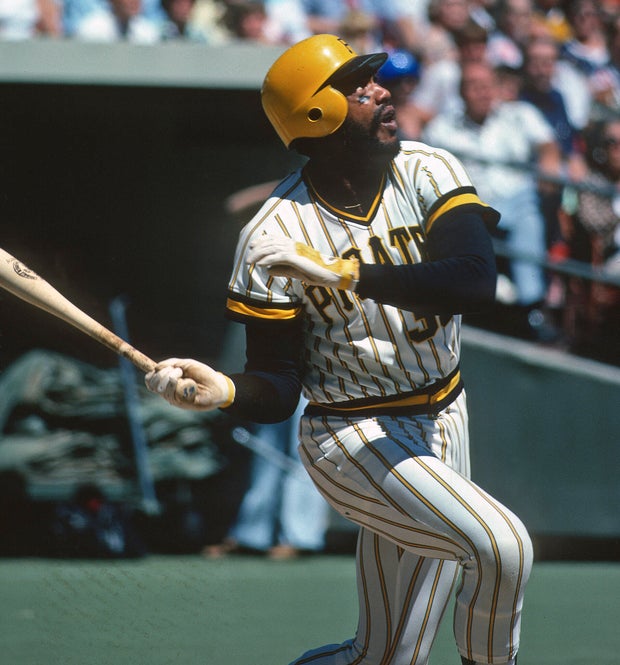
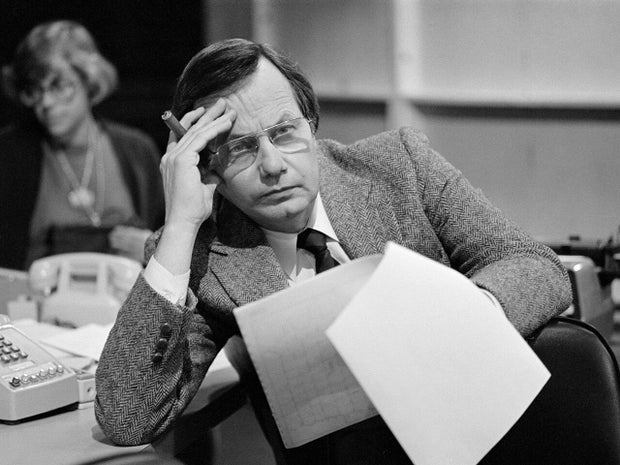
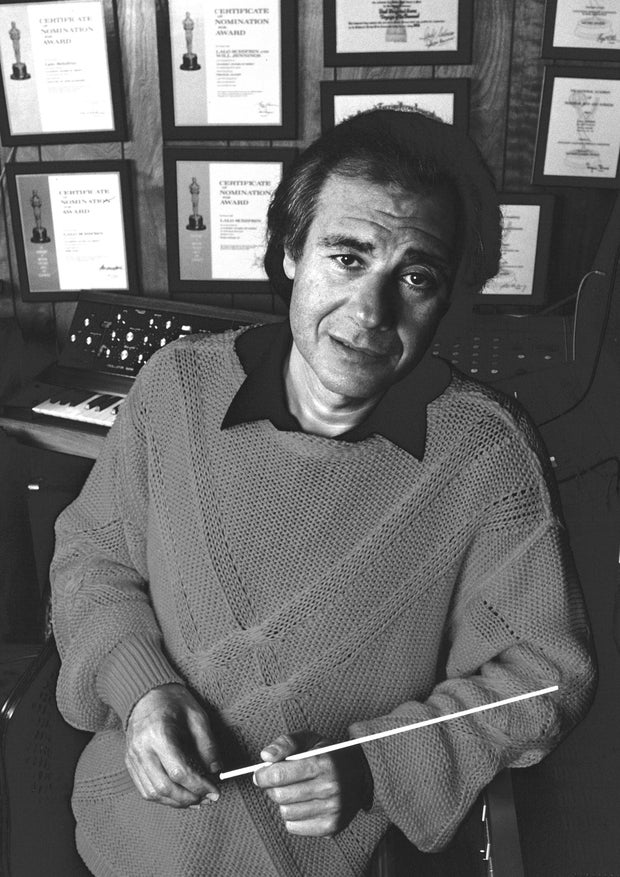
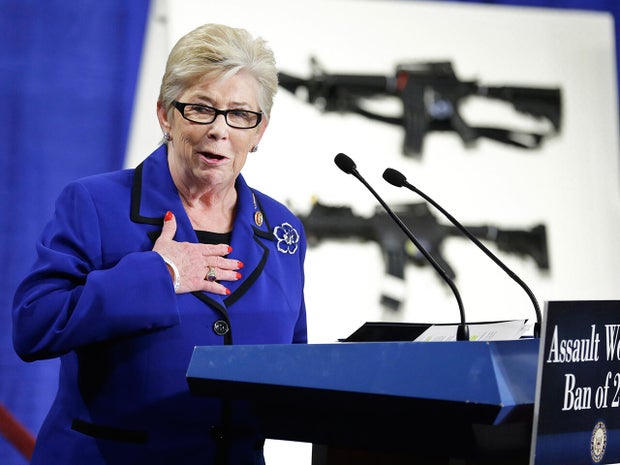

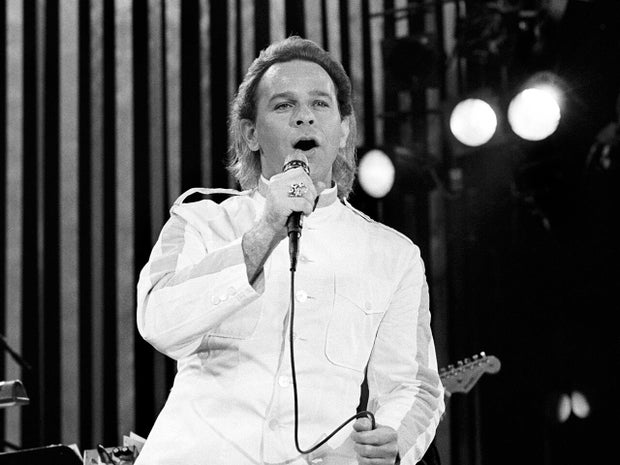
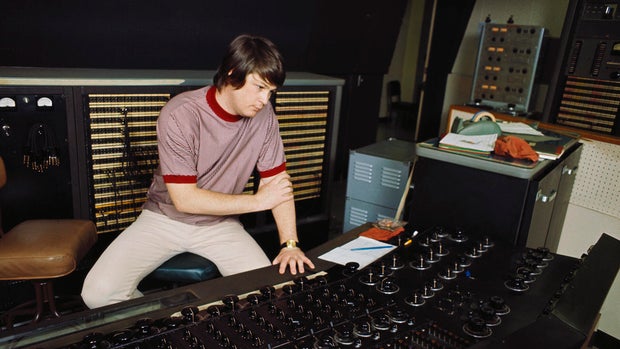
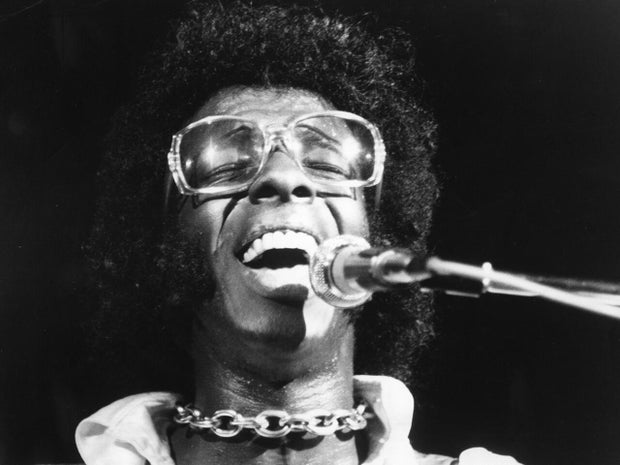

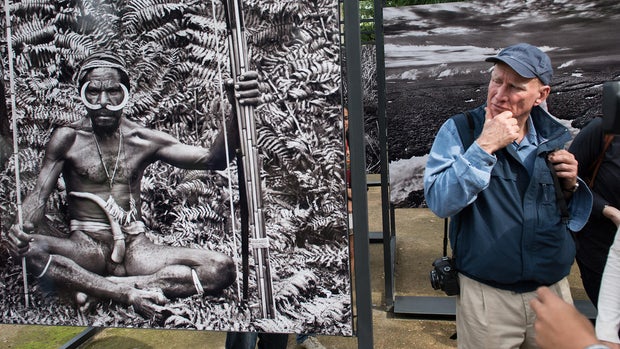
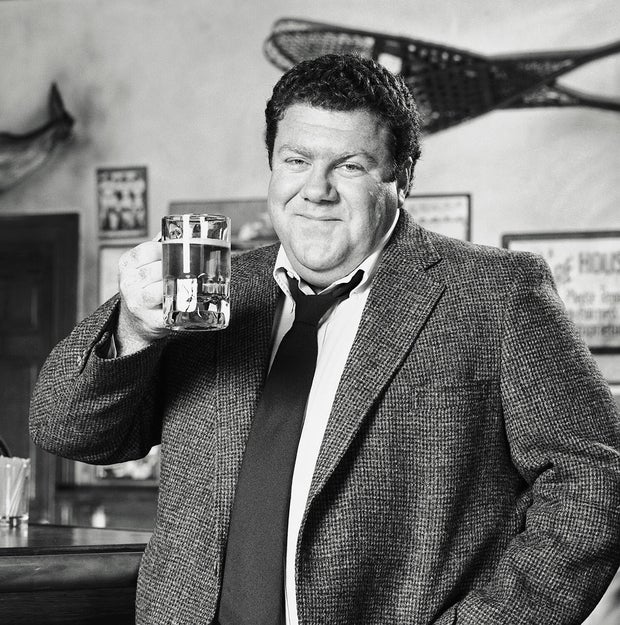



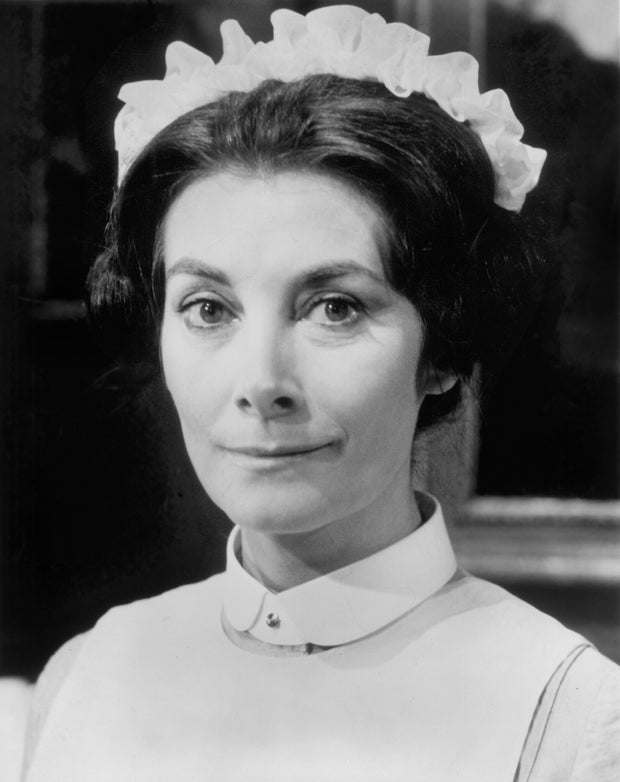
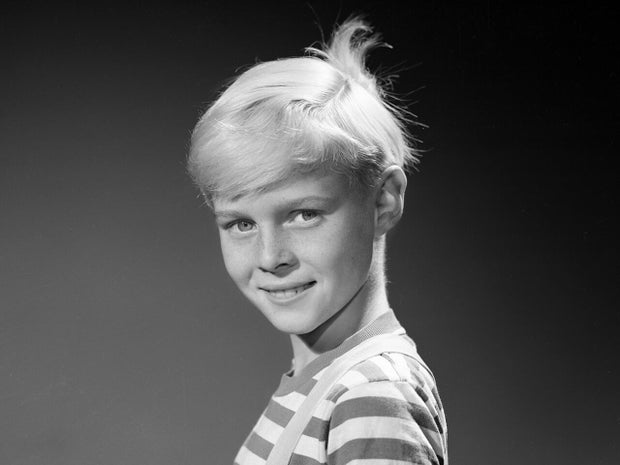

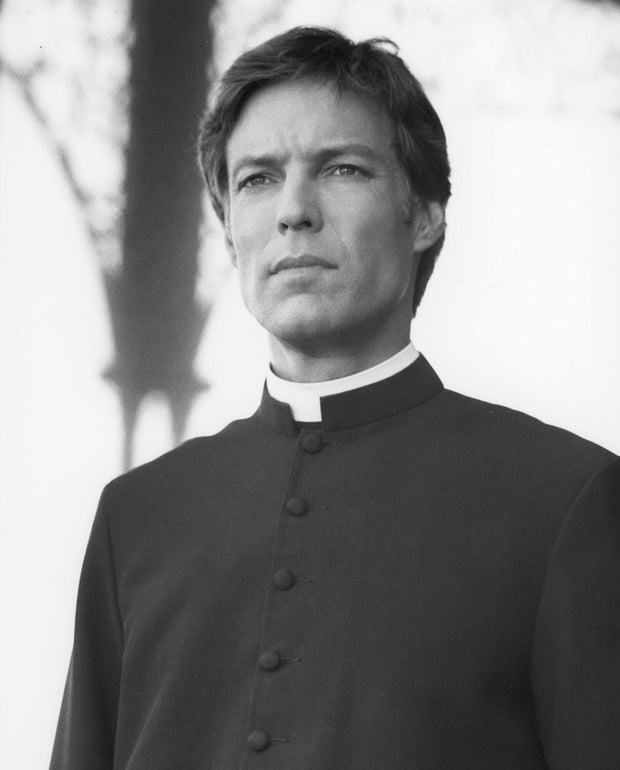
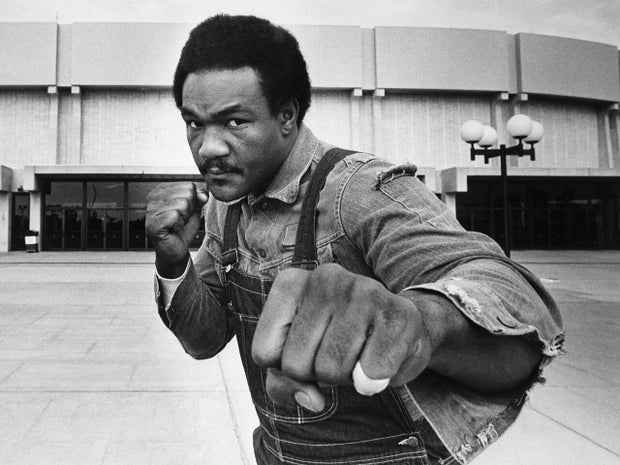
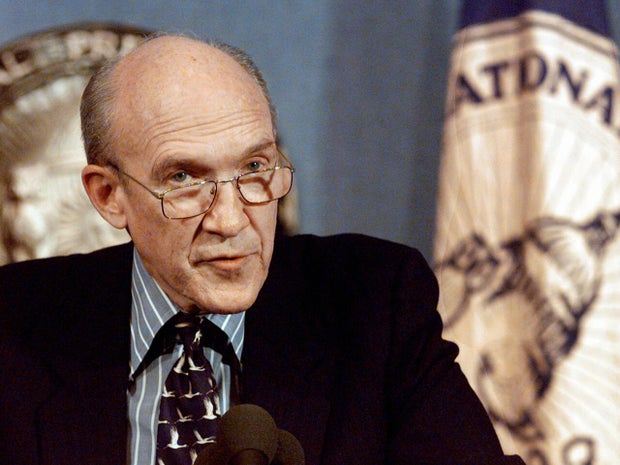
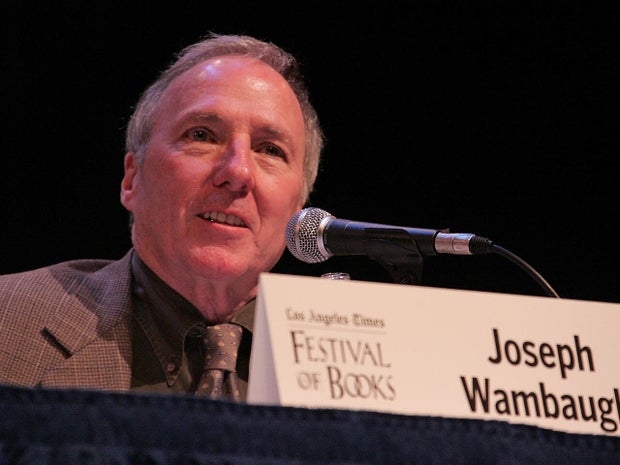
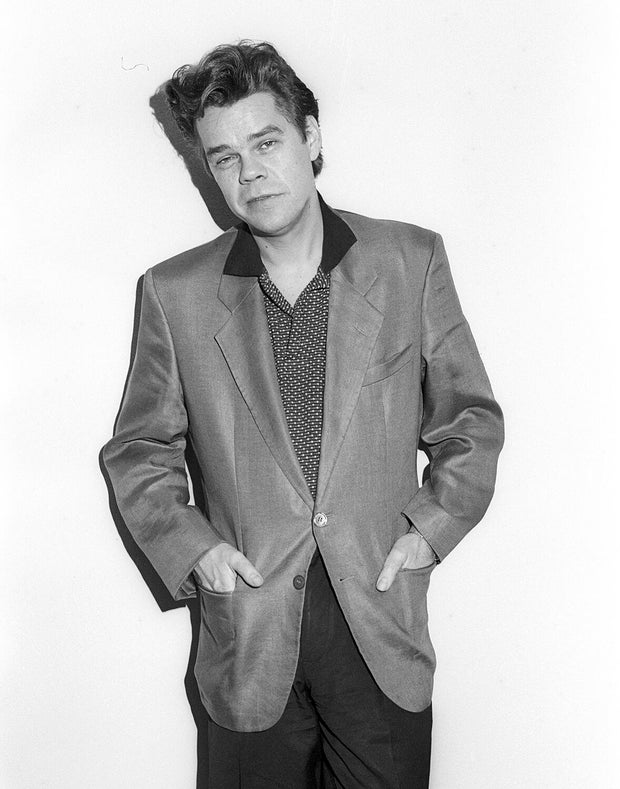
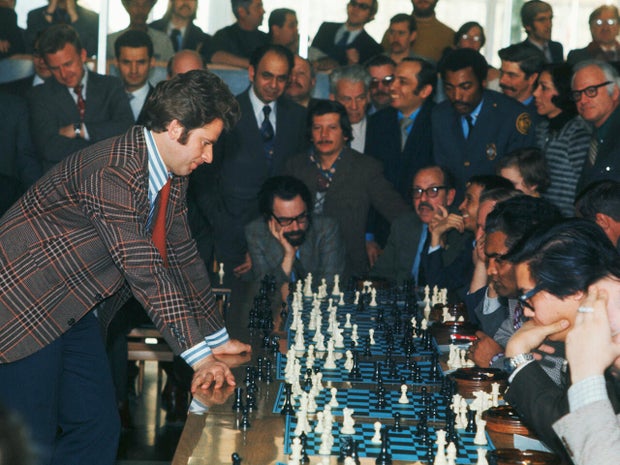


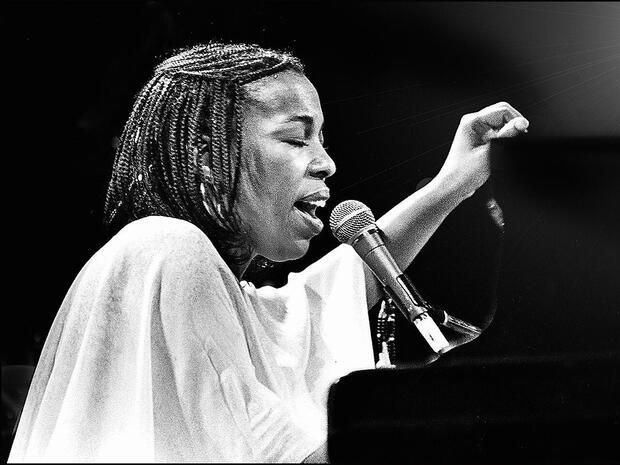

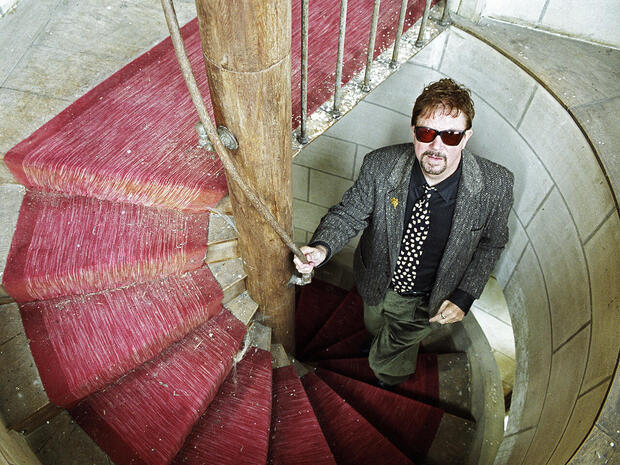
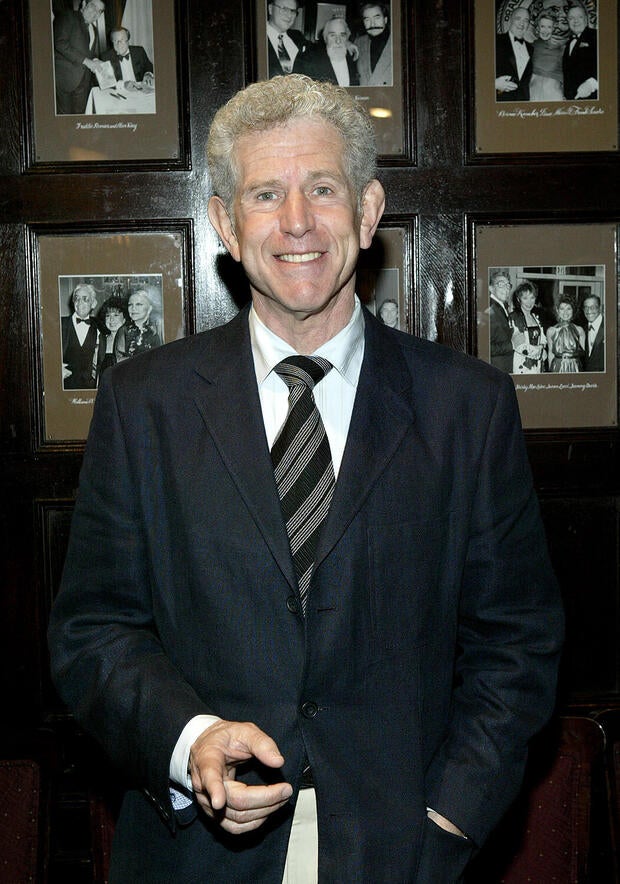

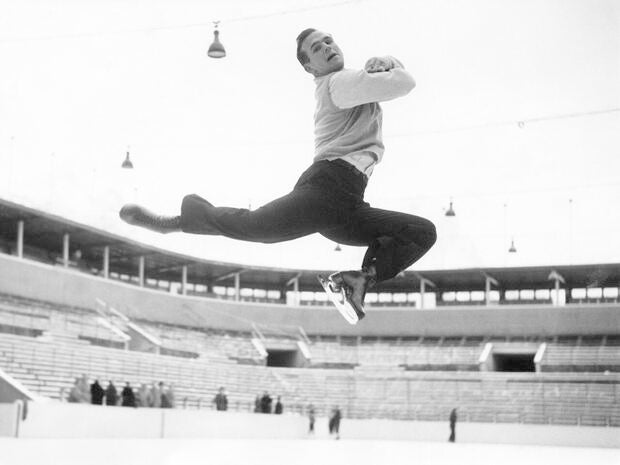
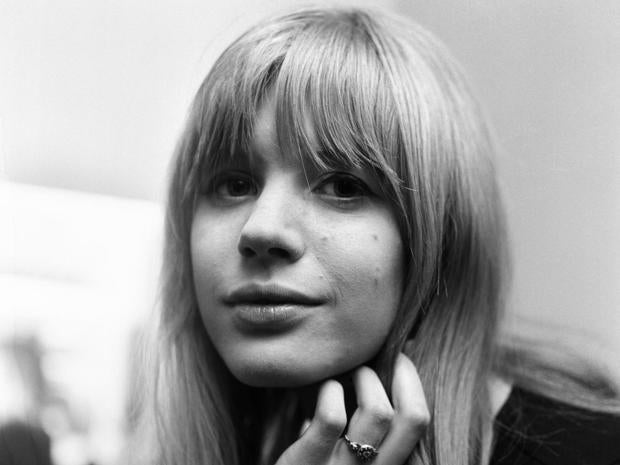

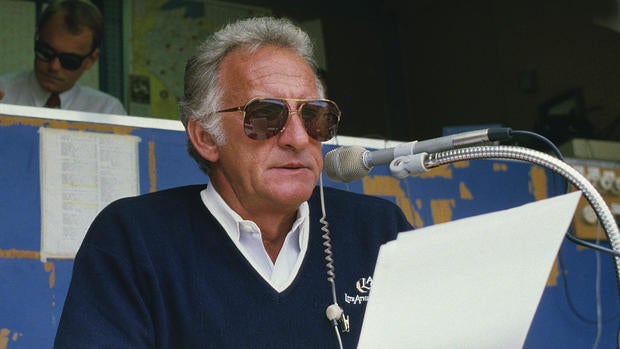
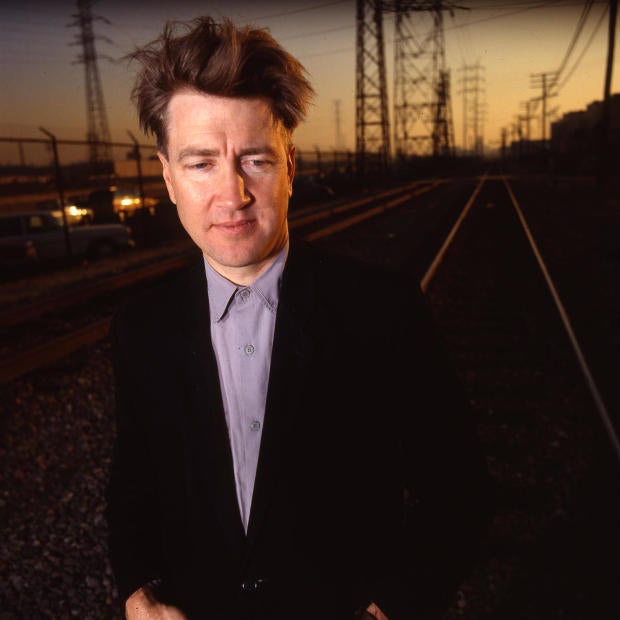
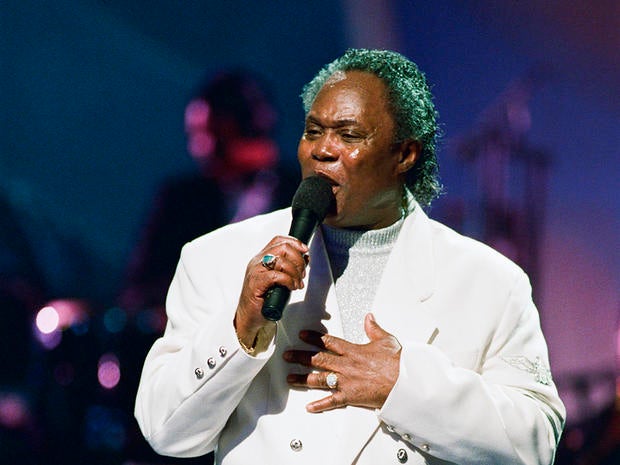
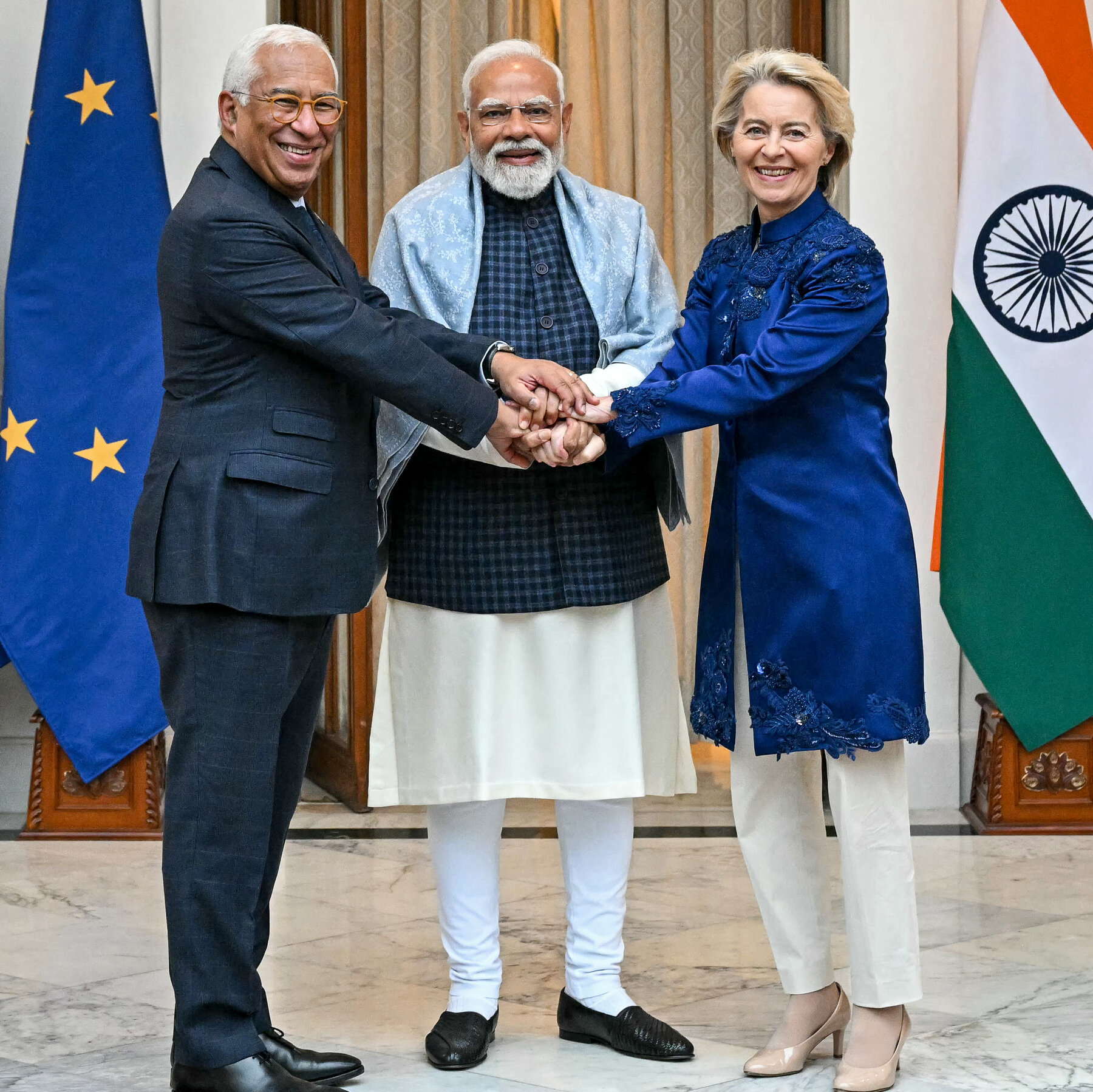

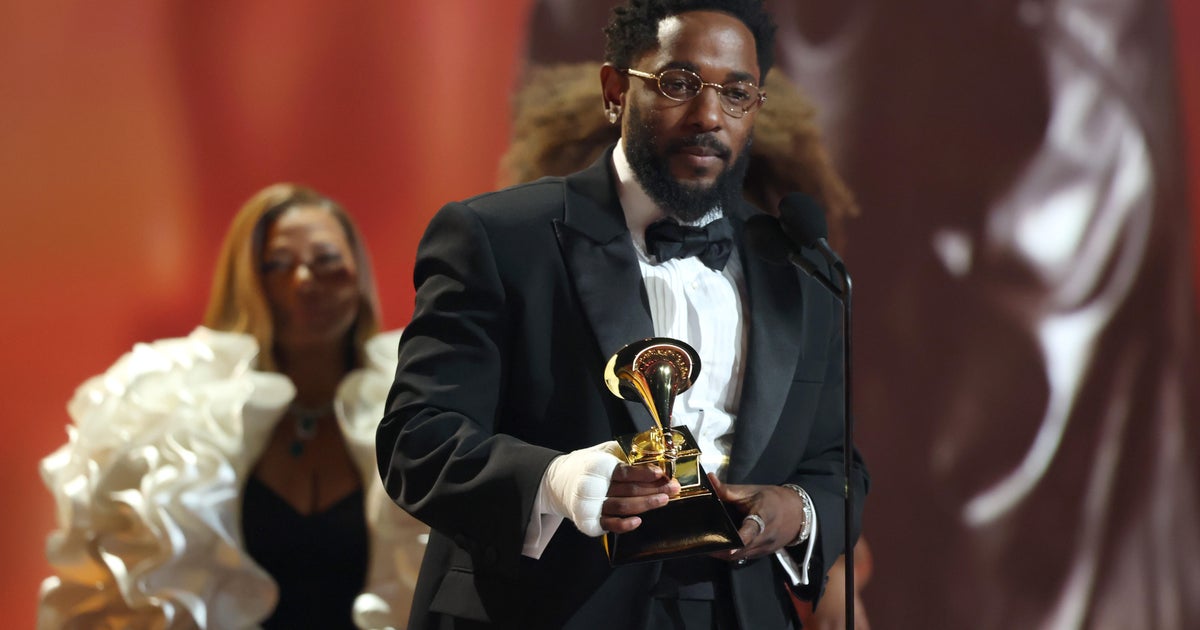



-3.png)



